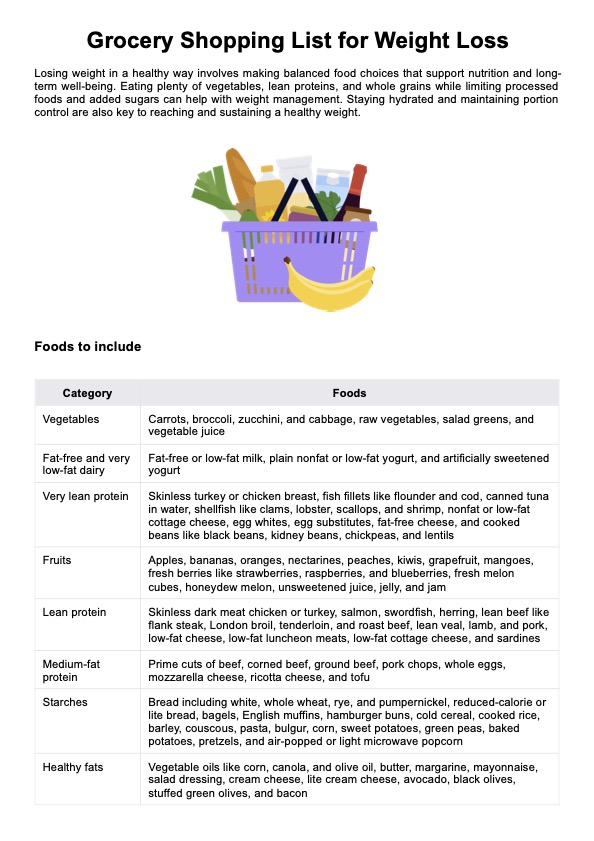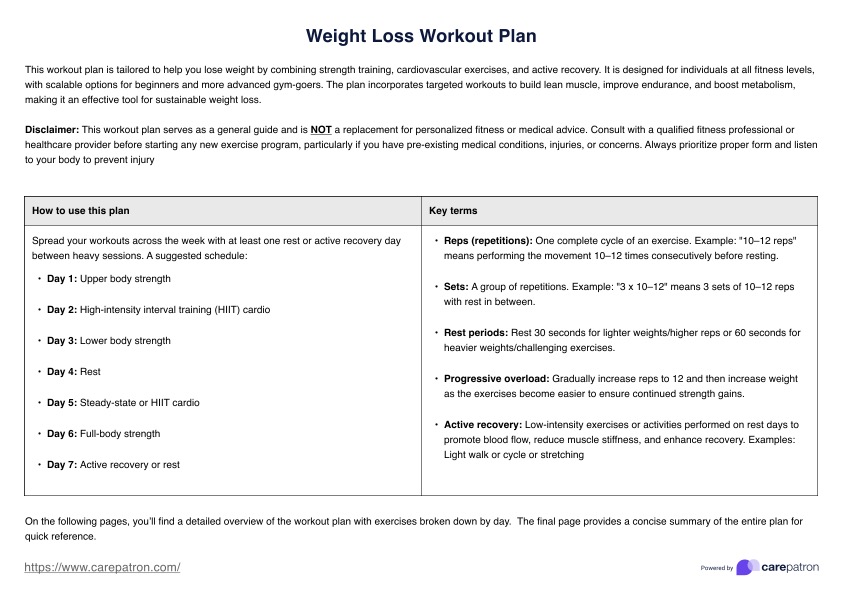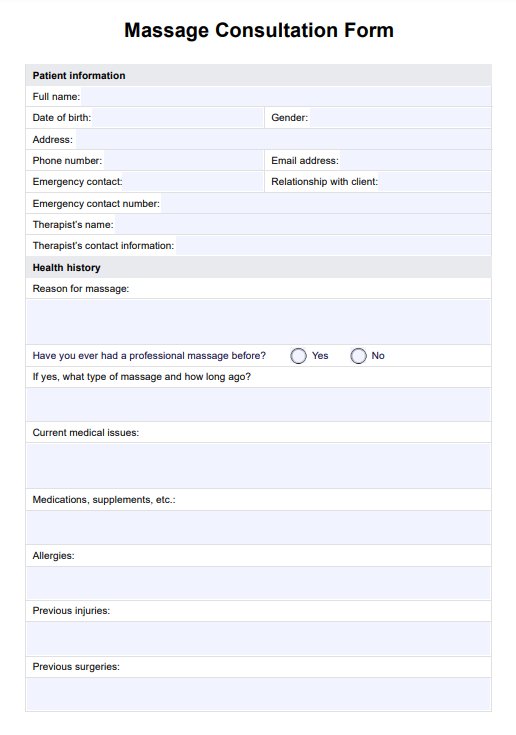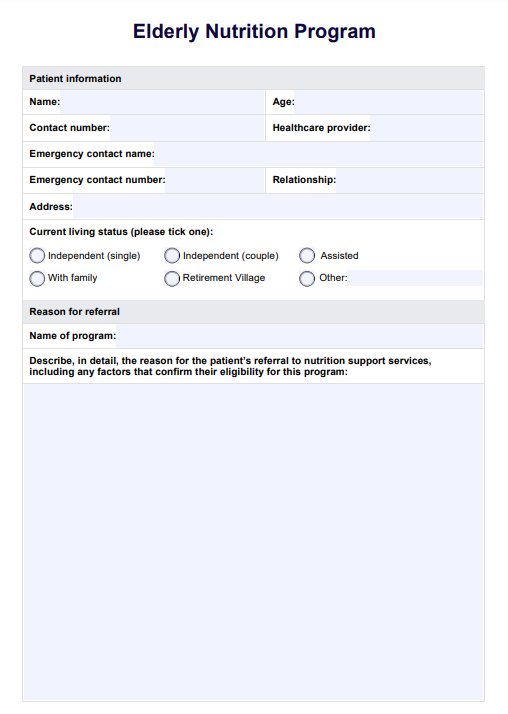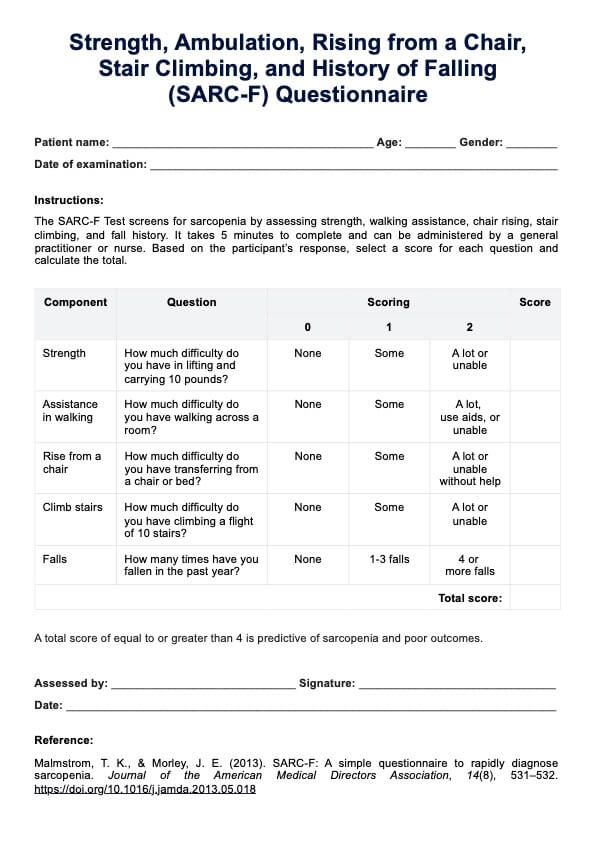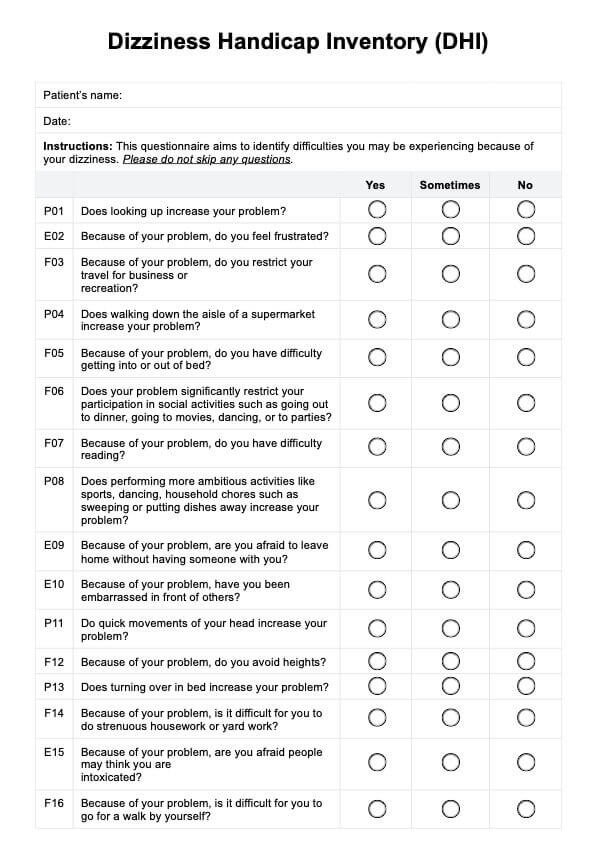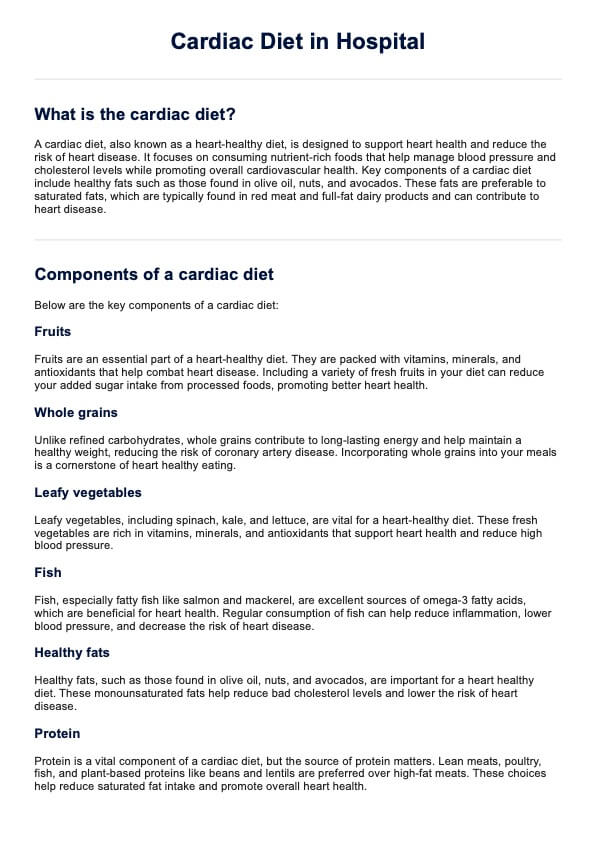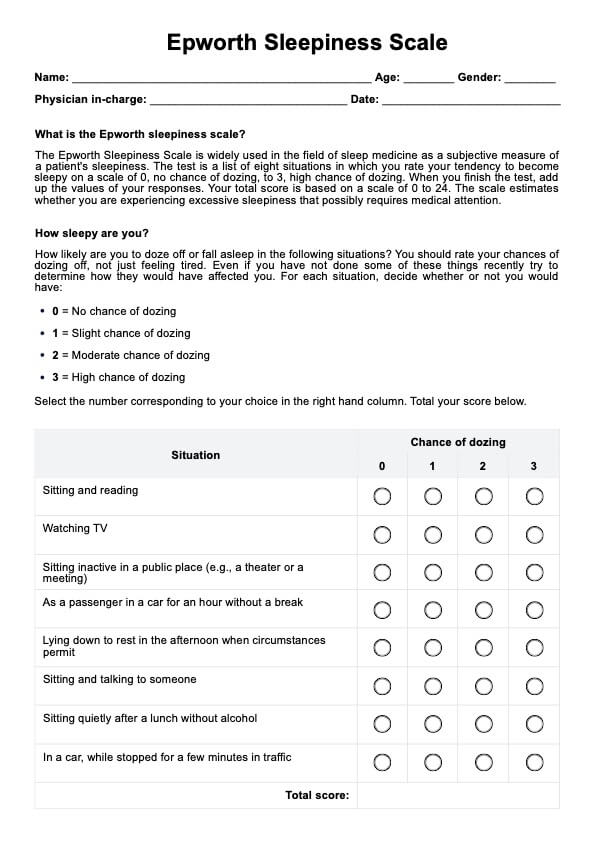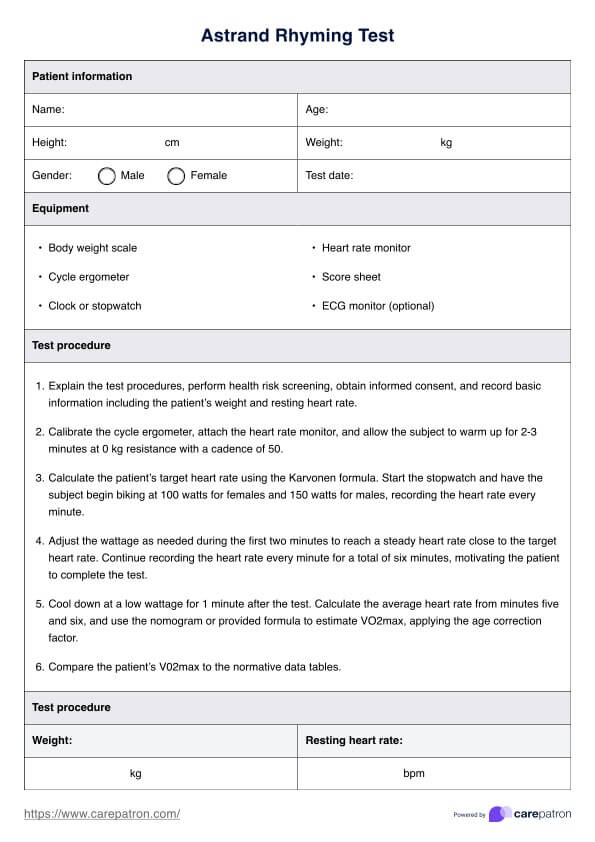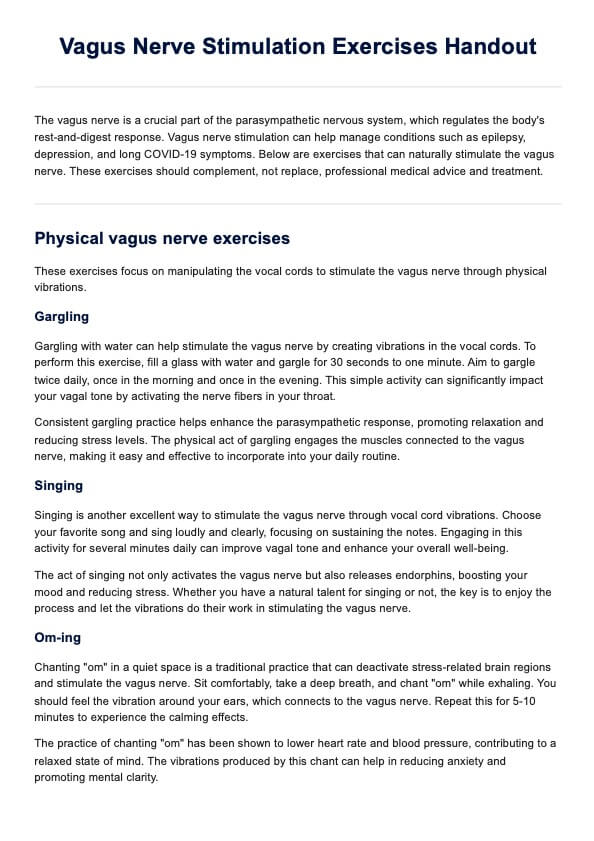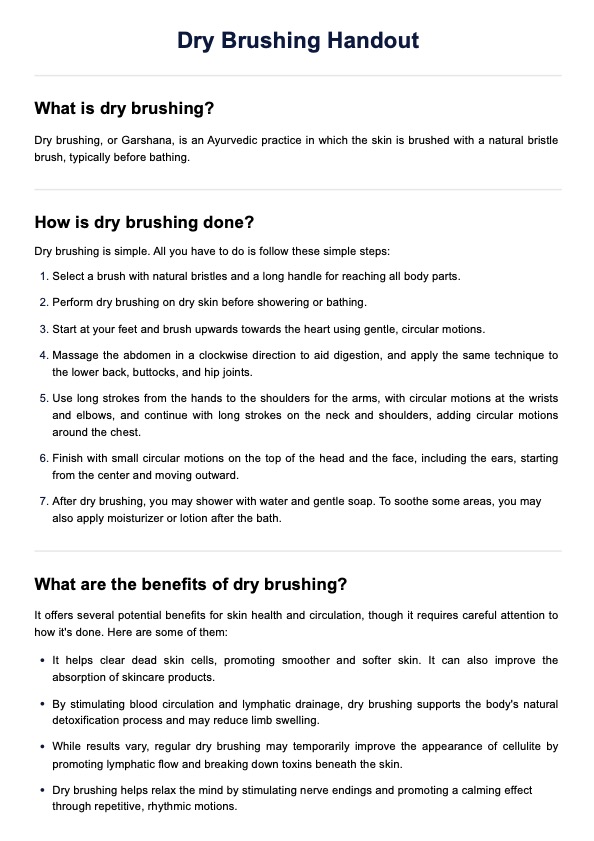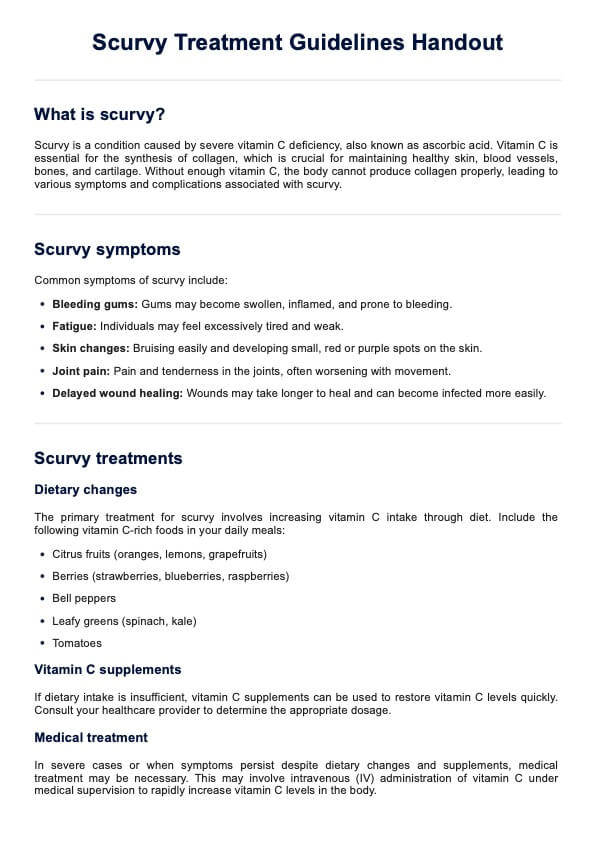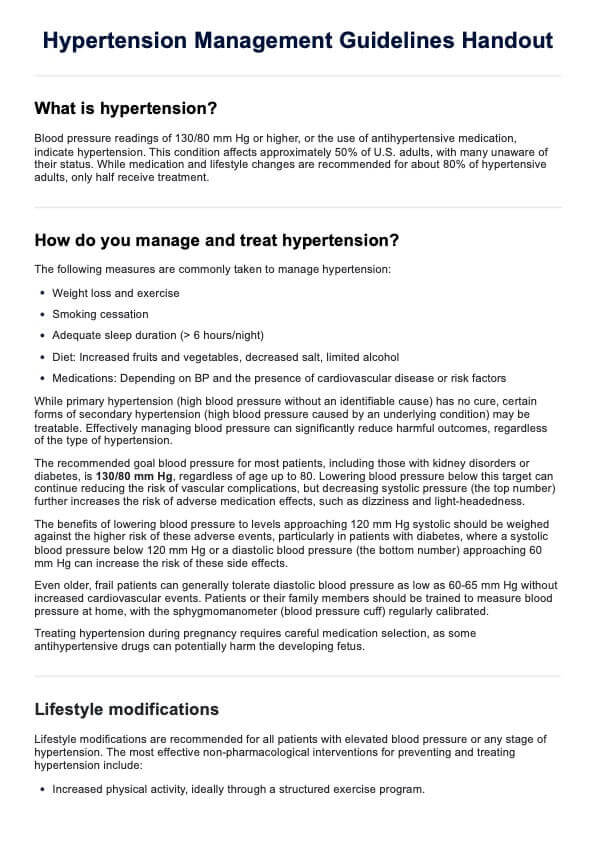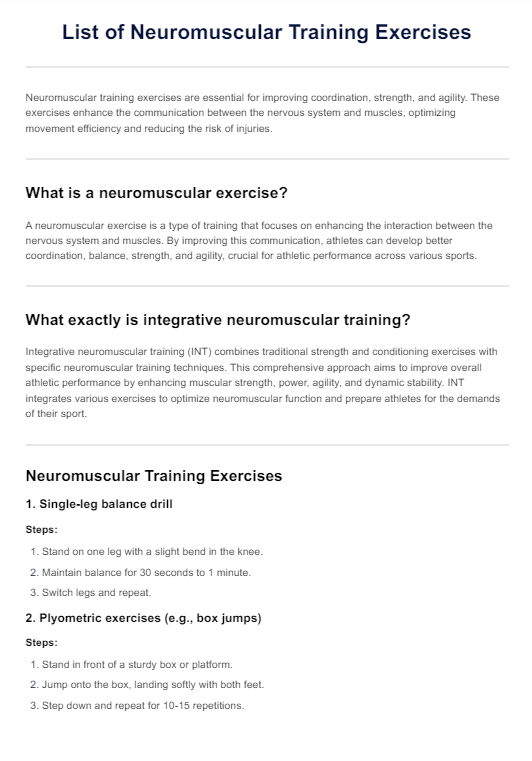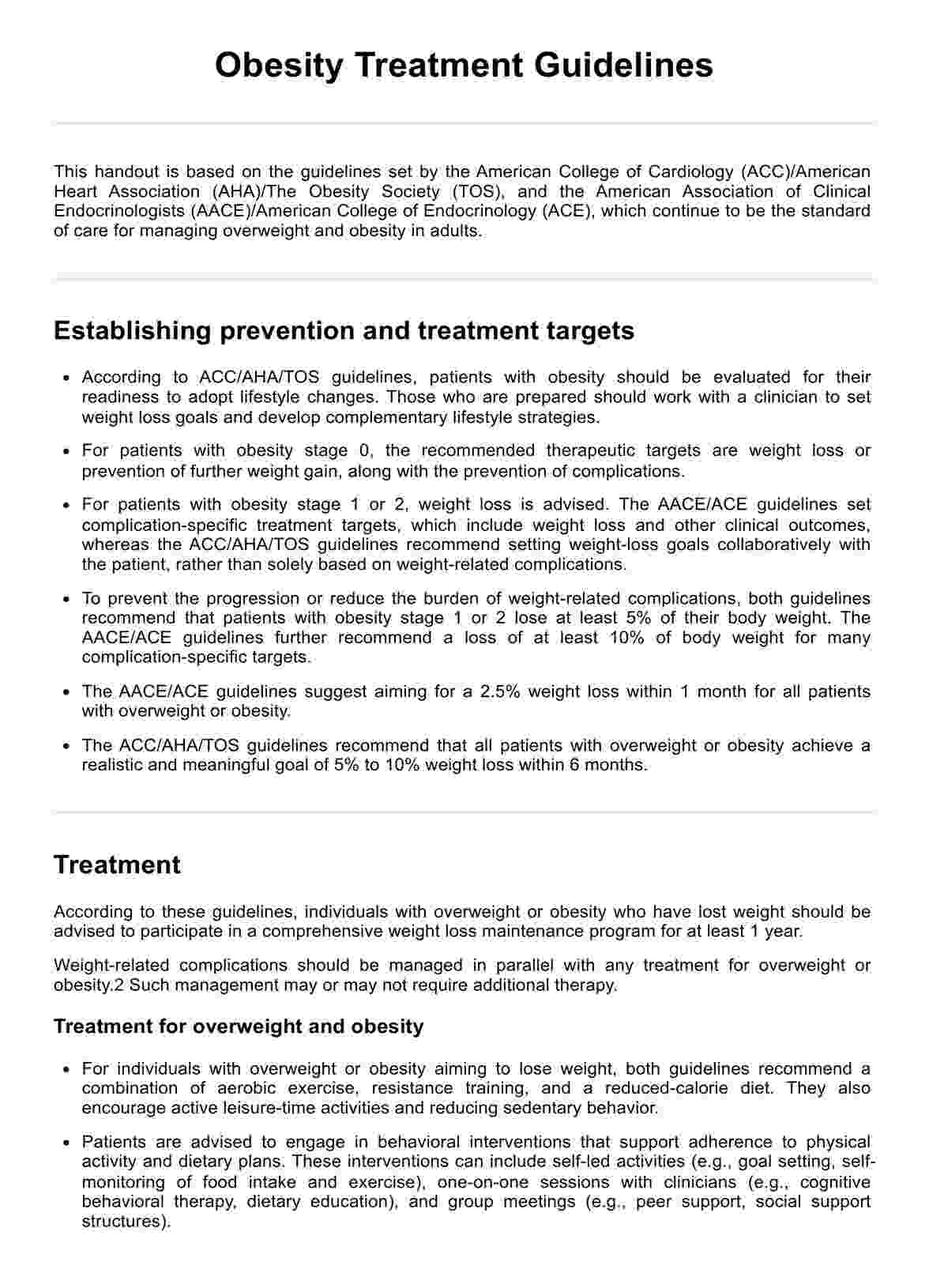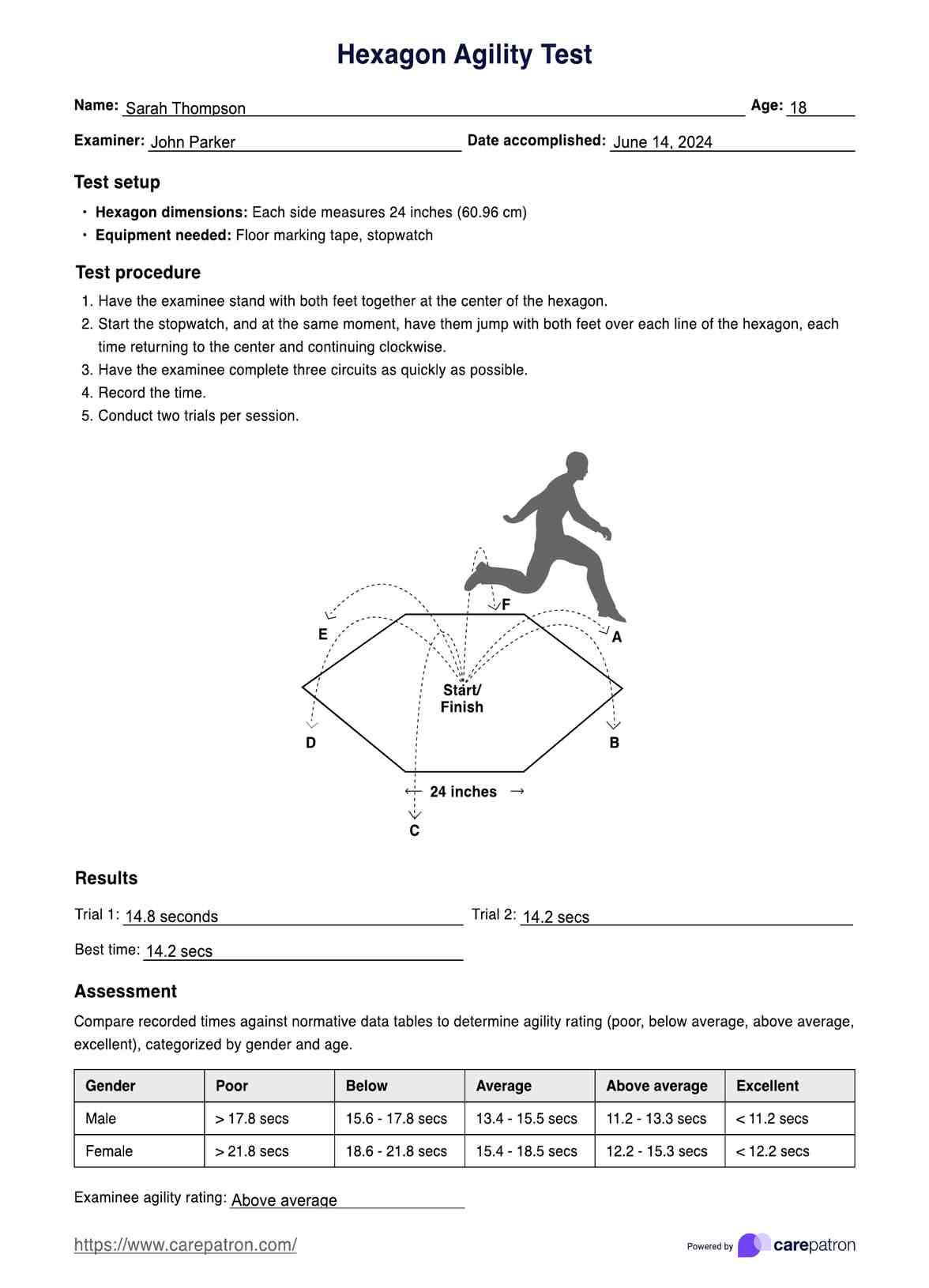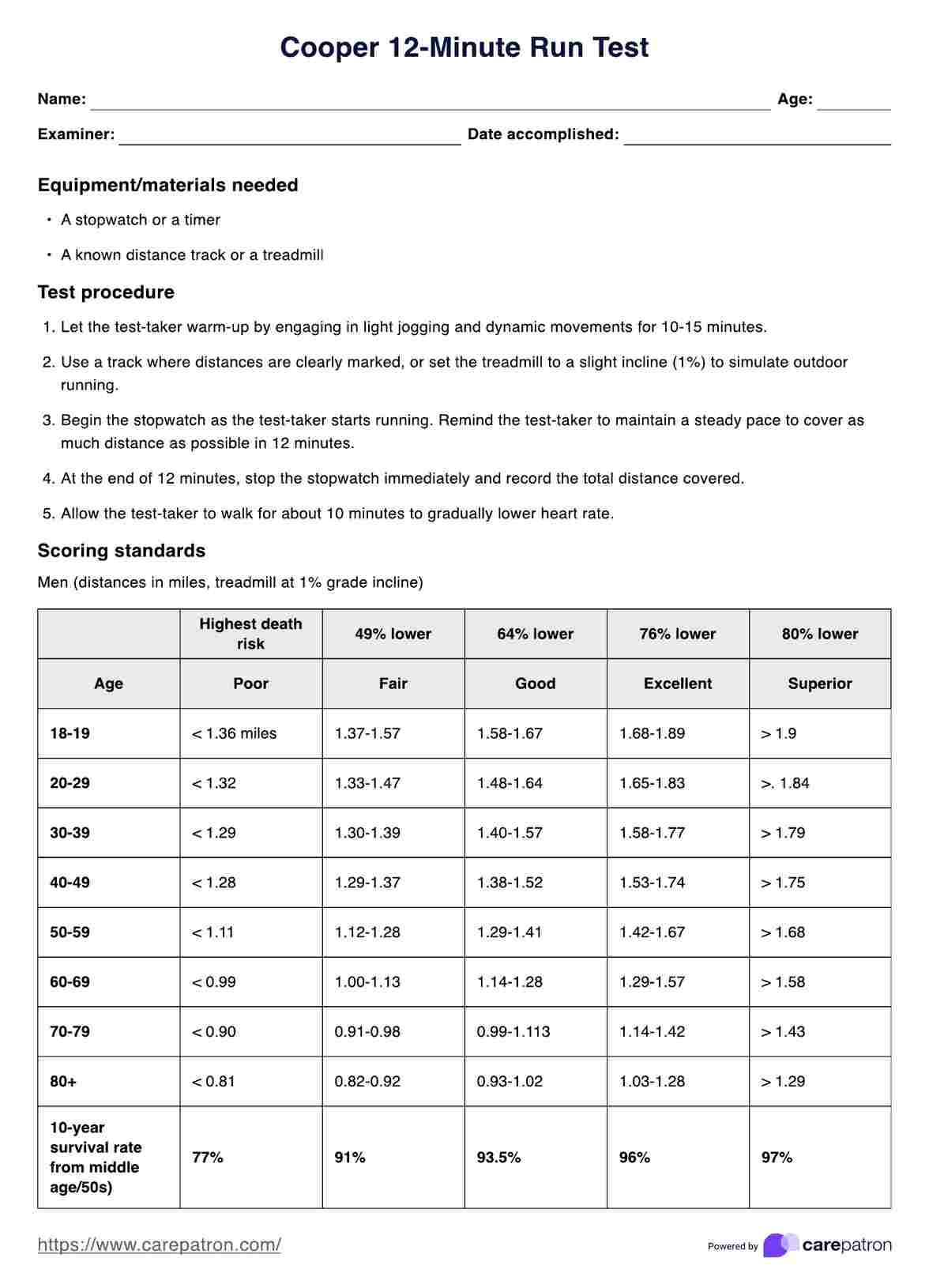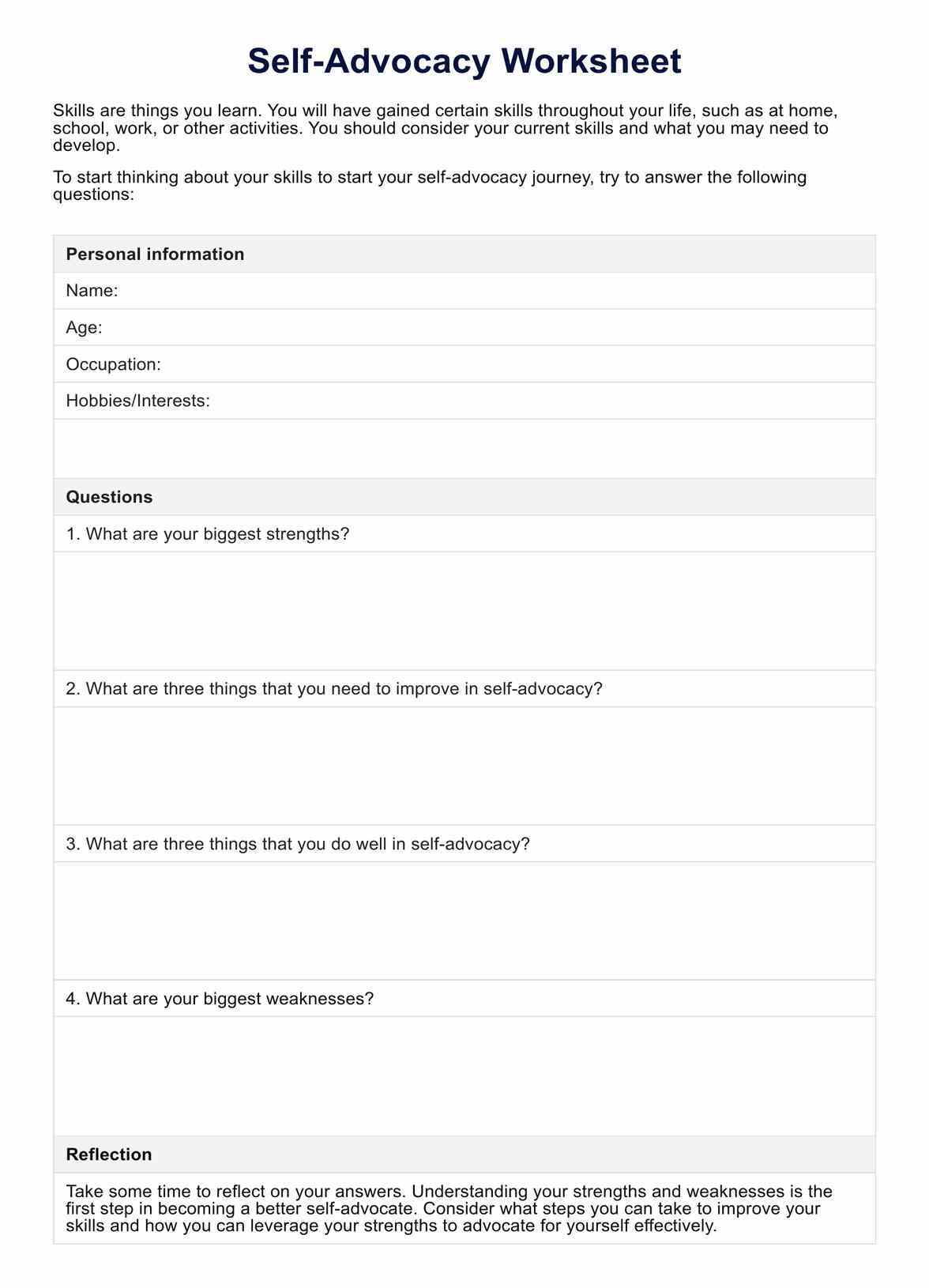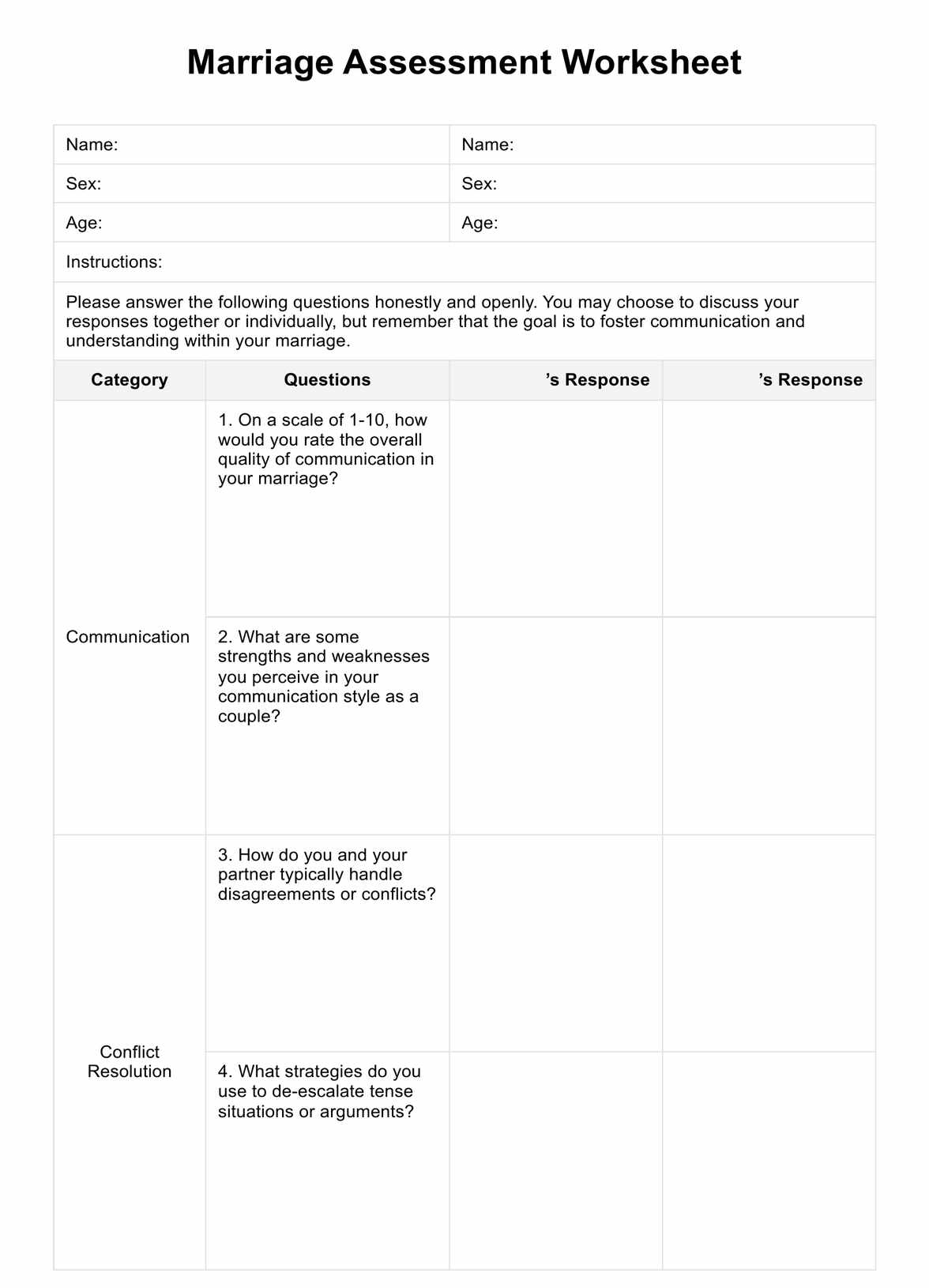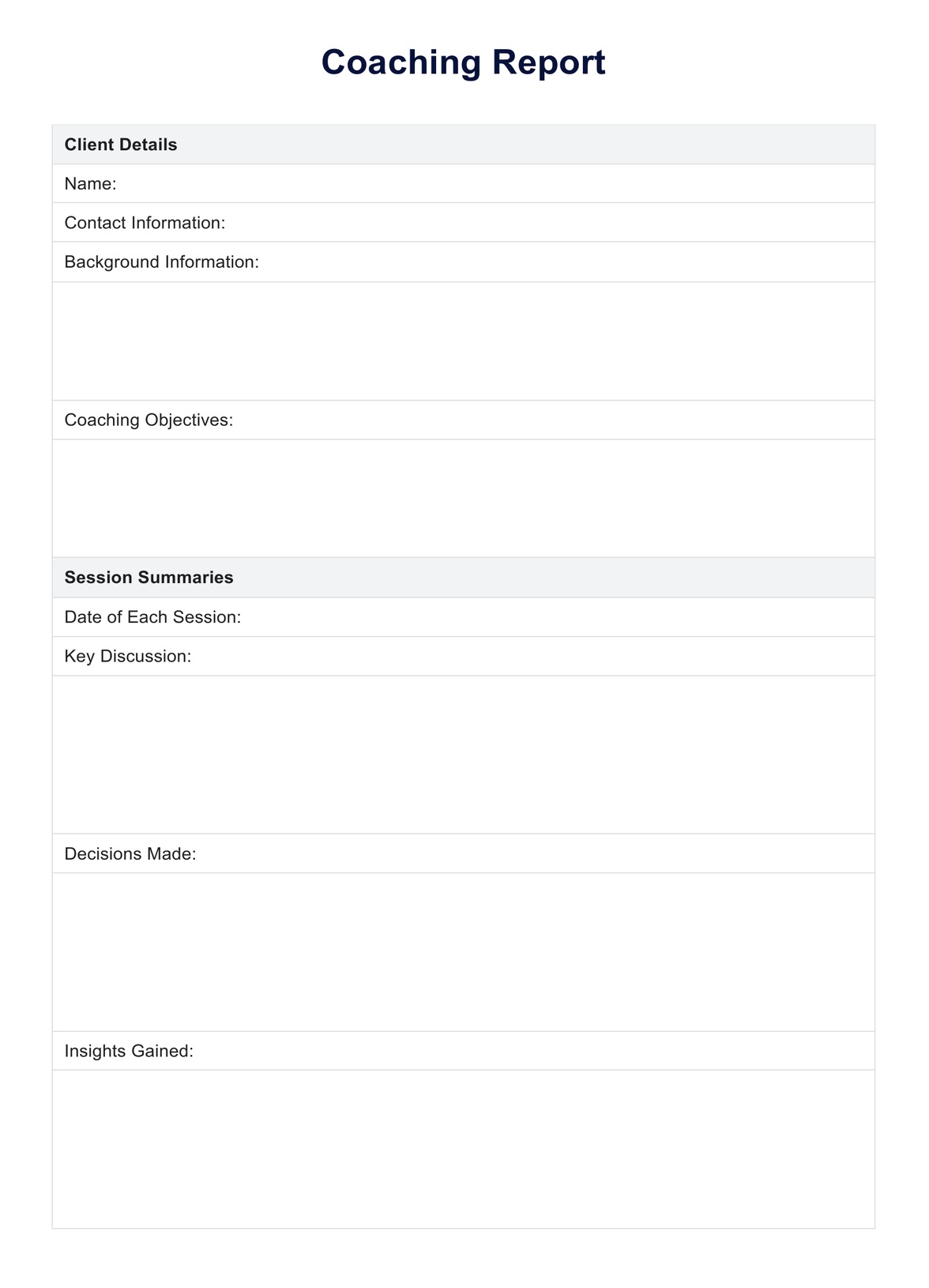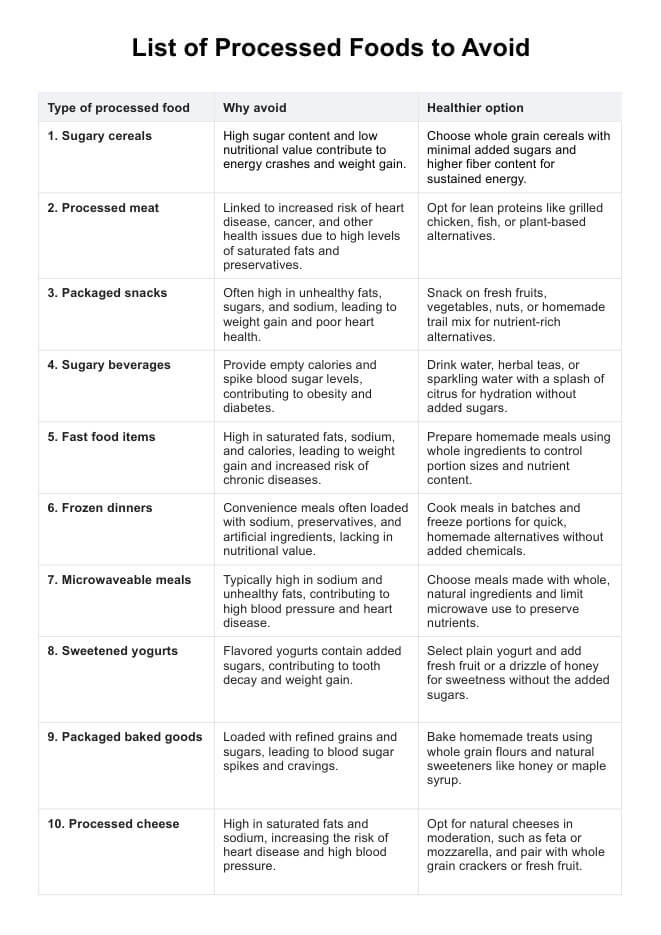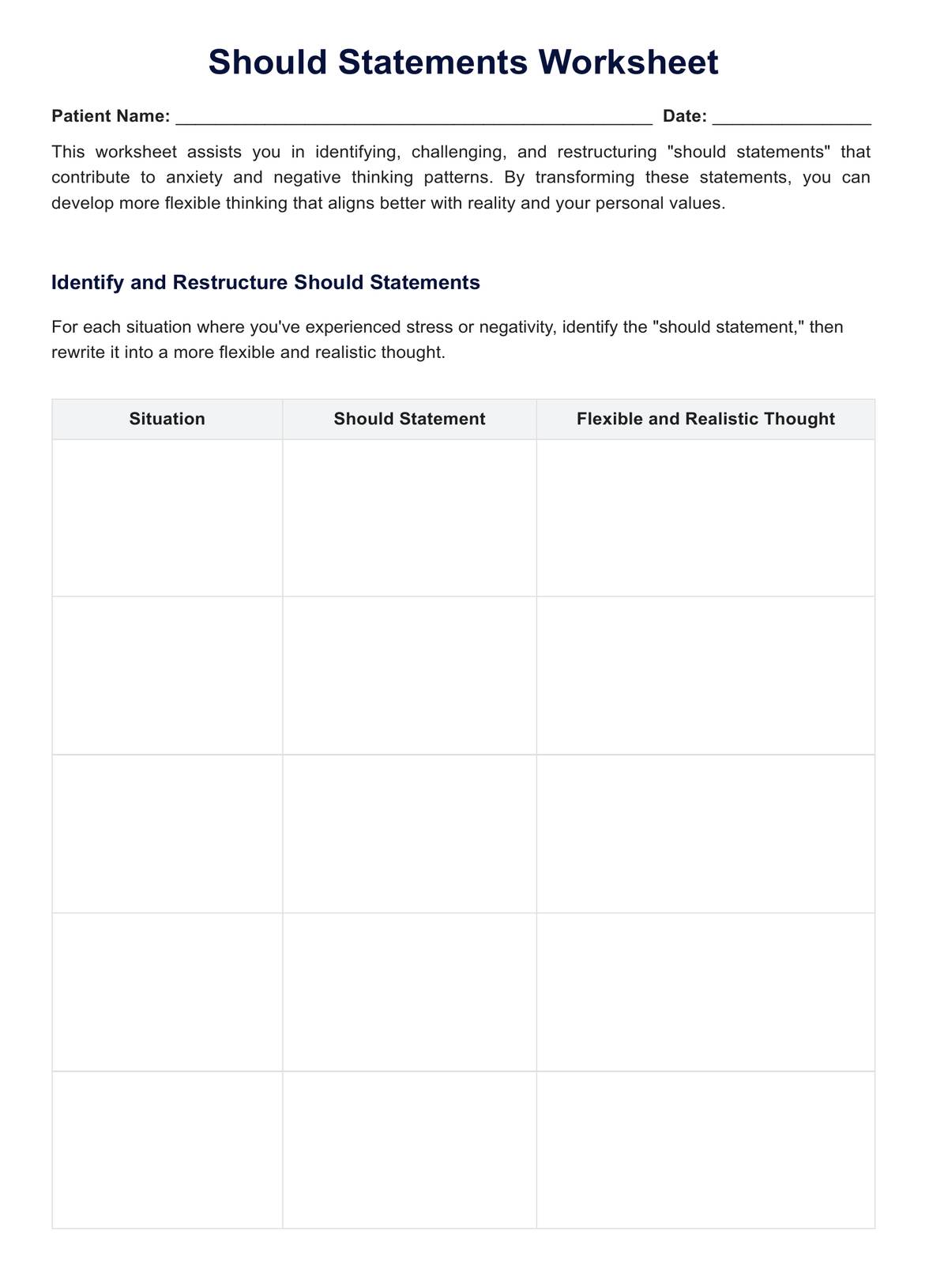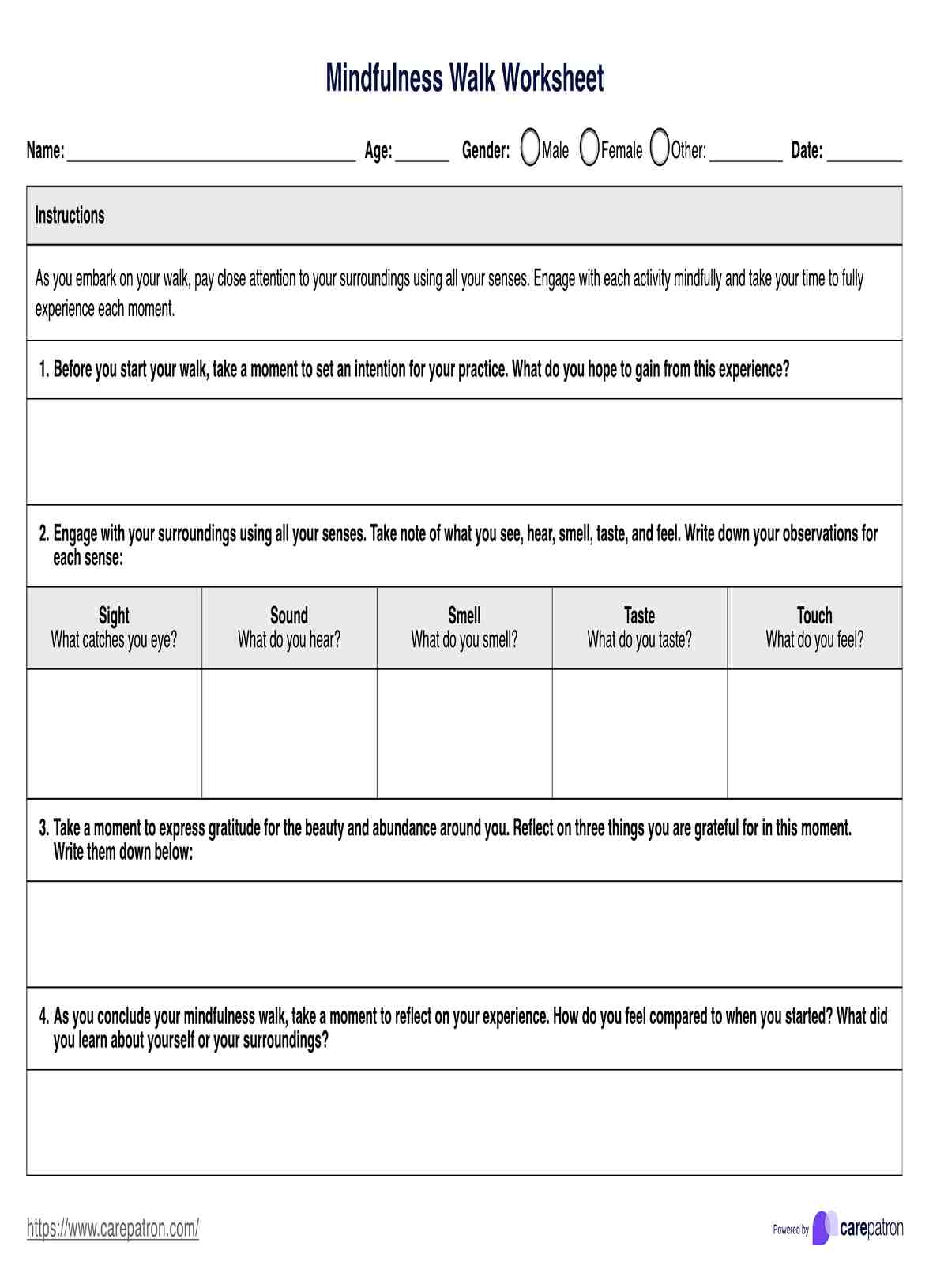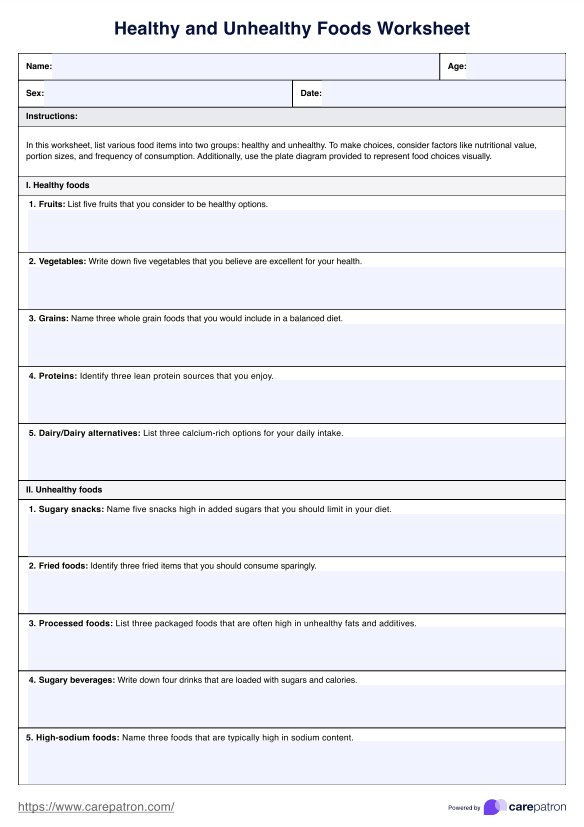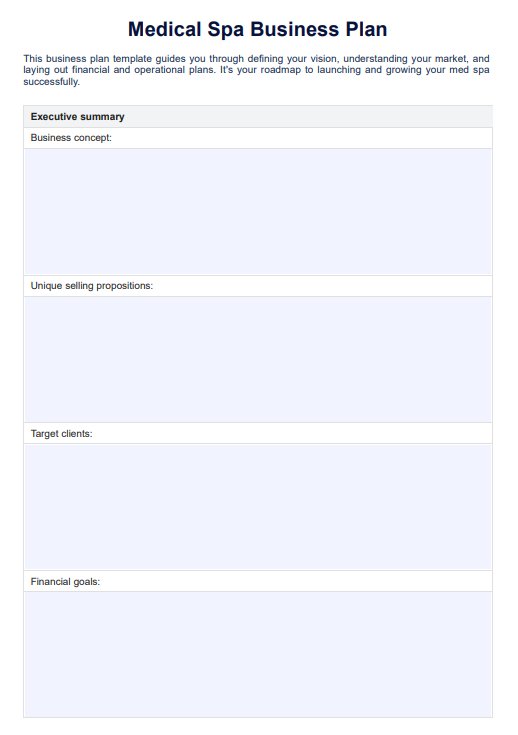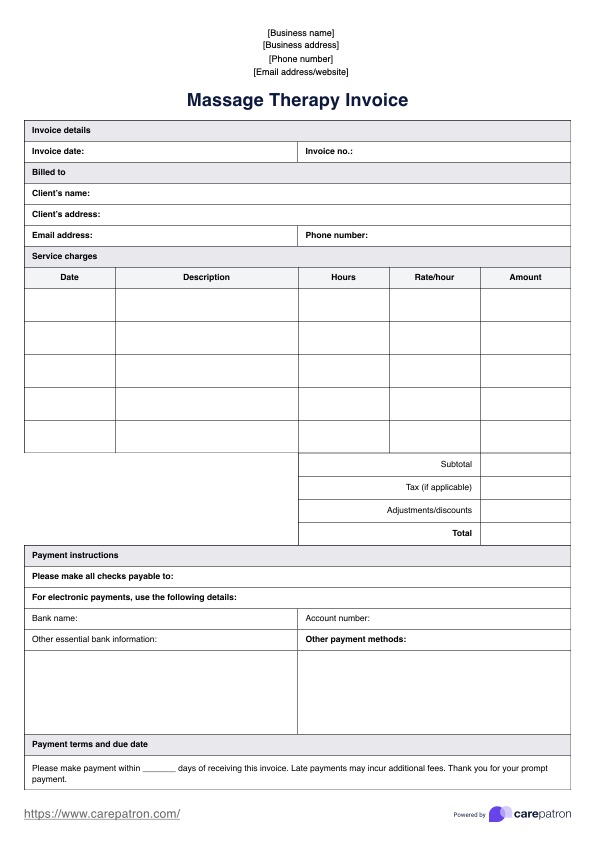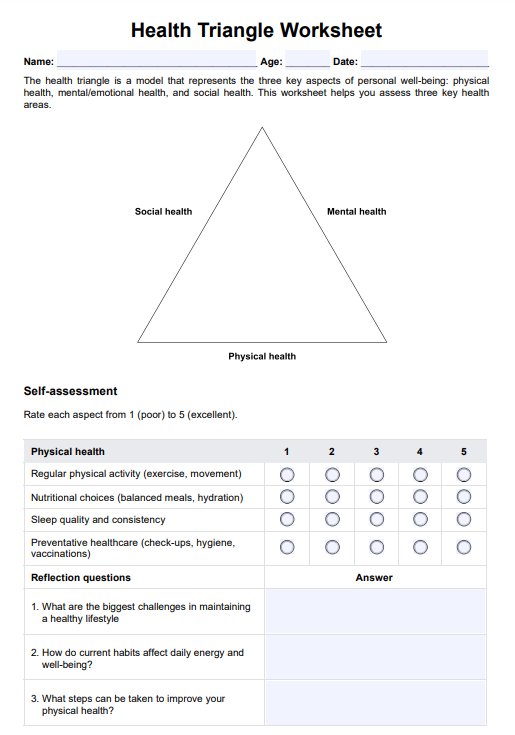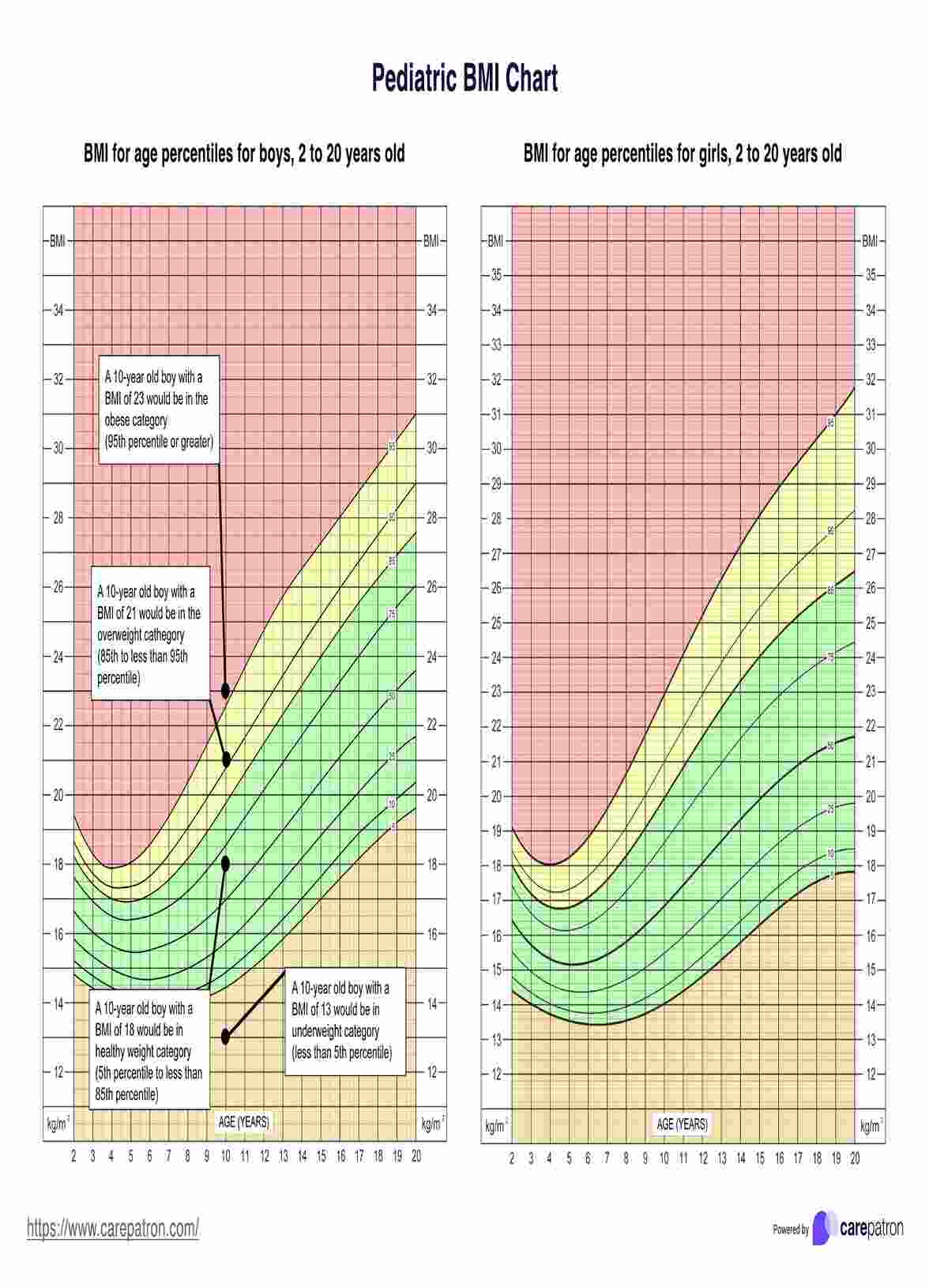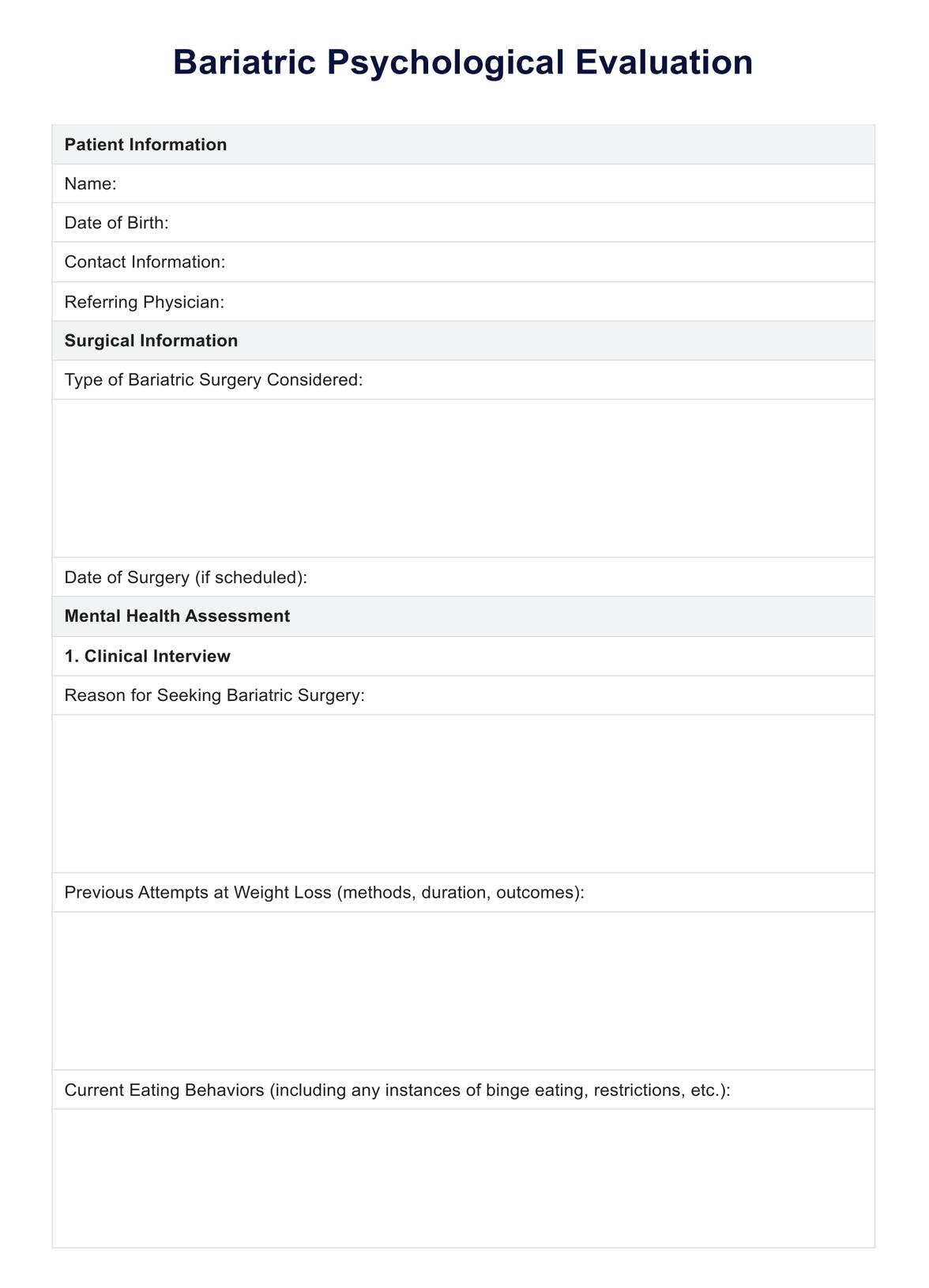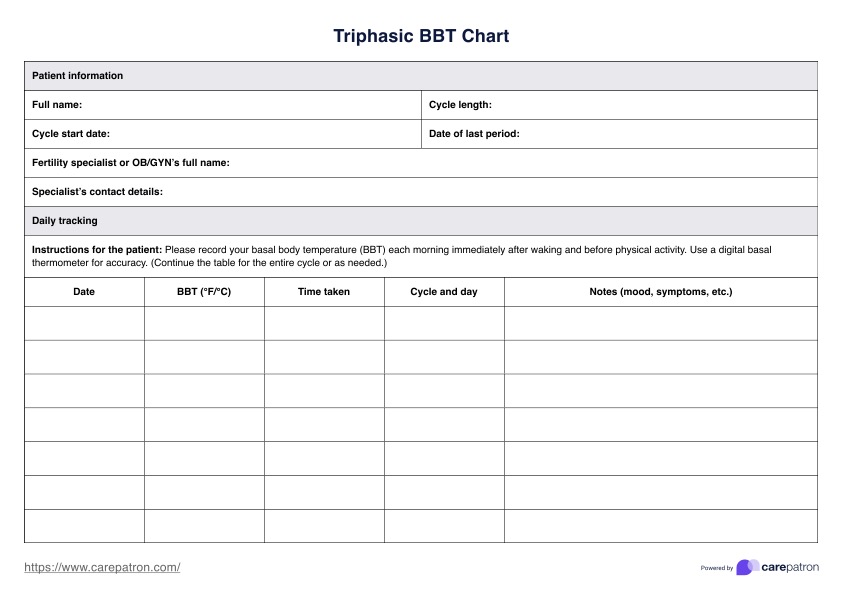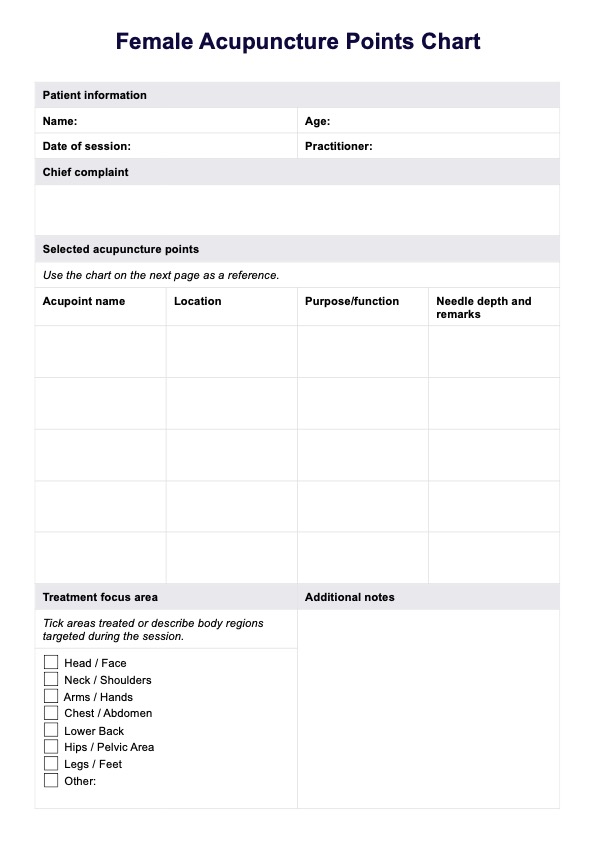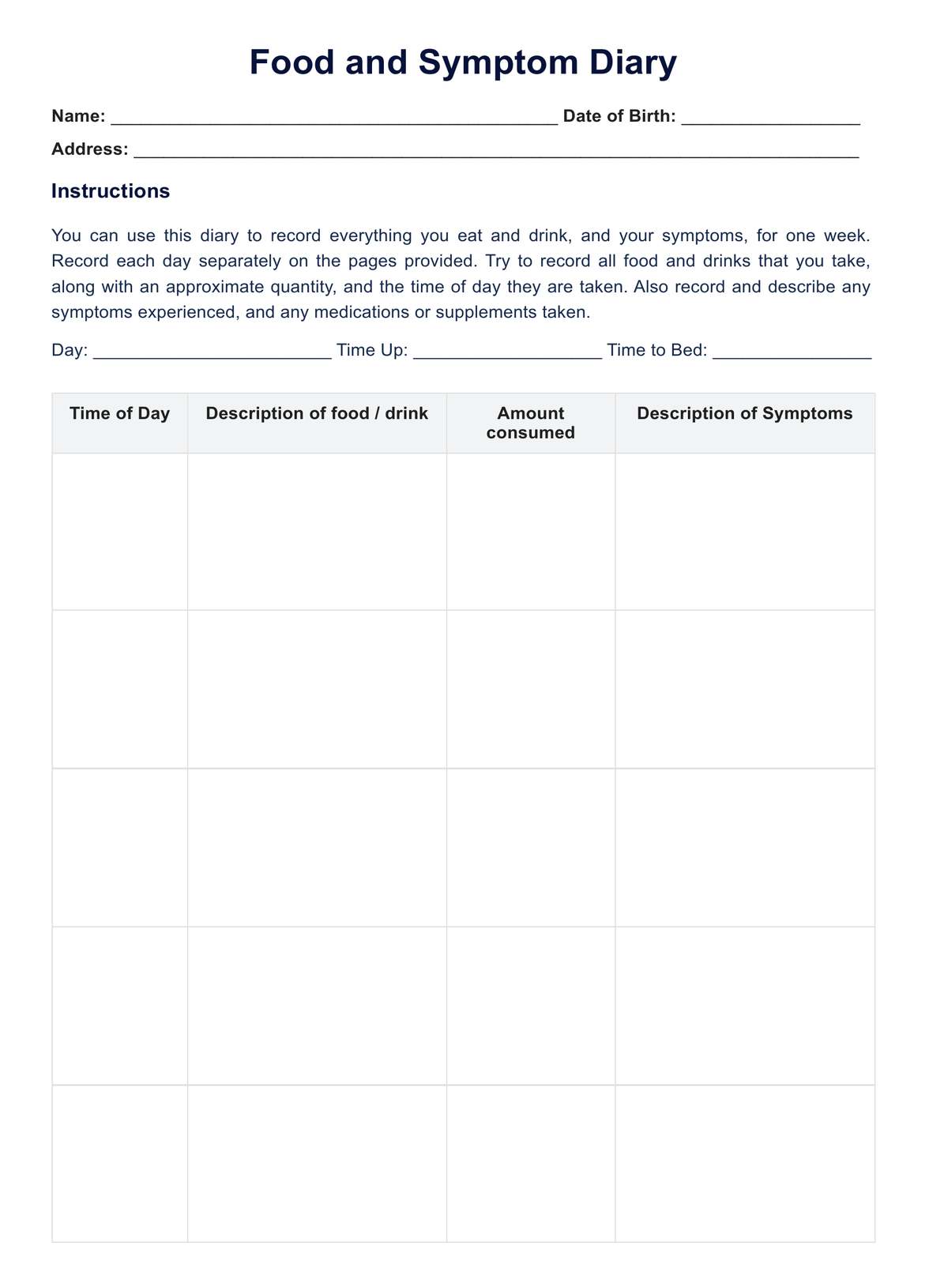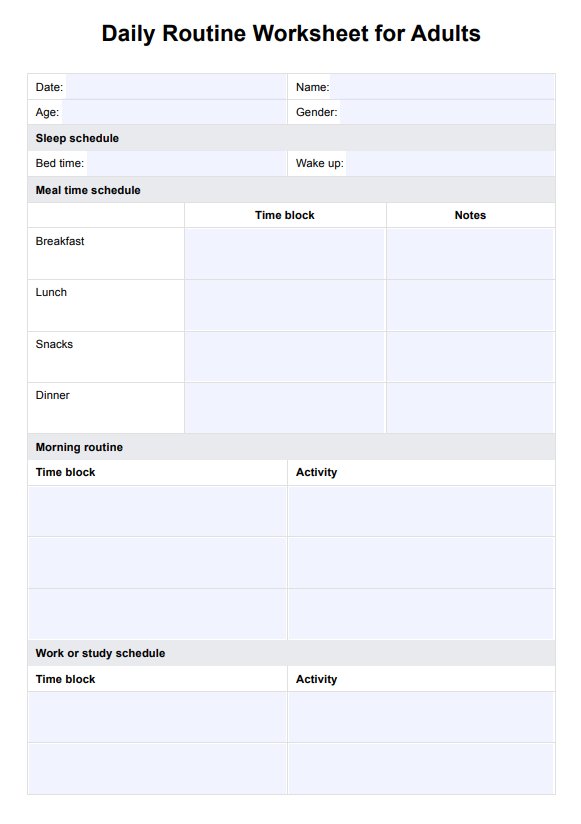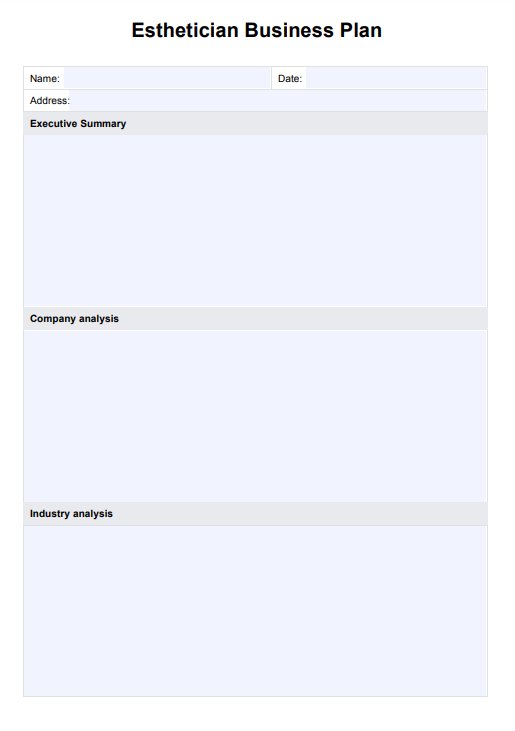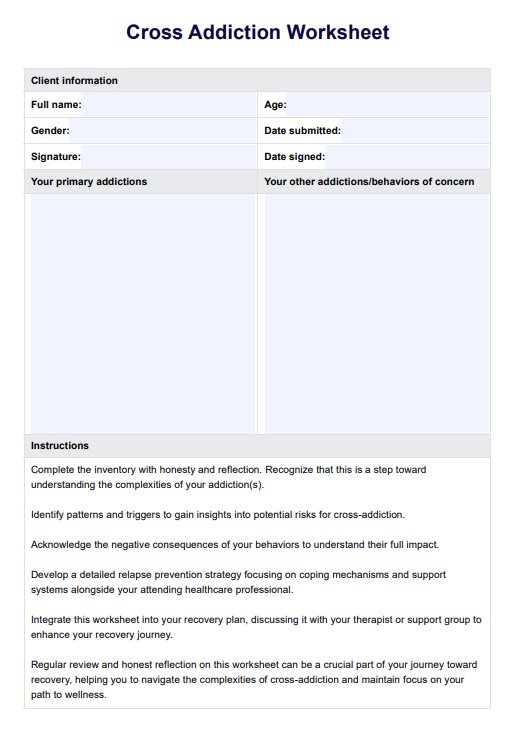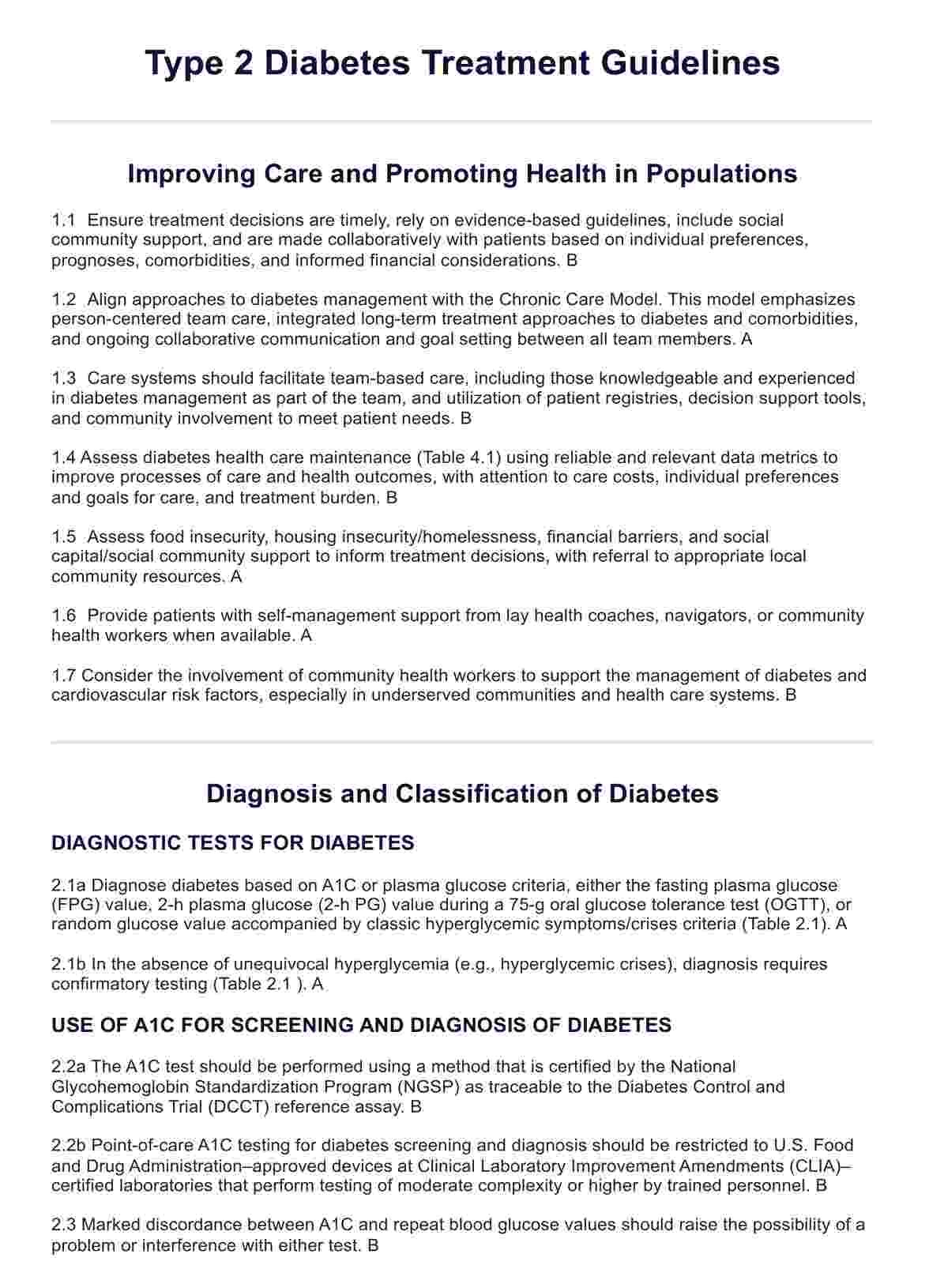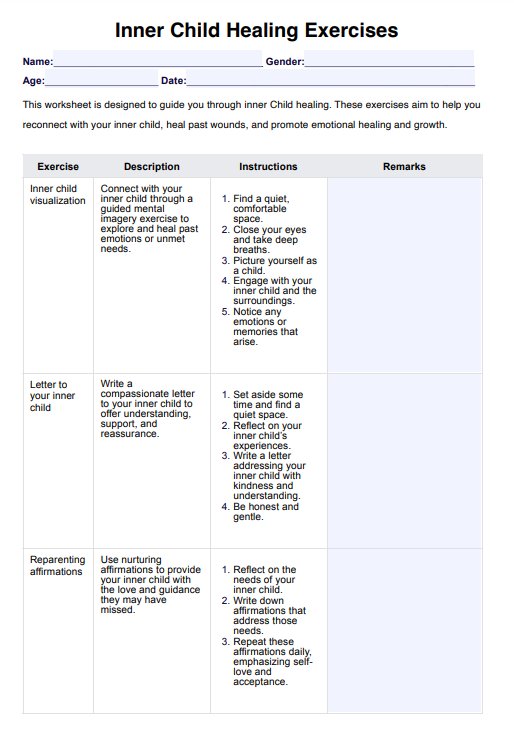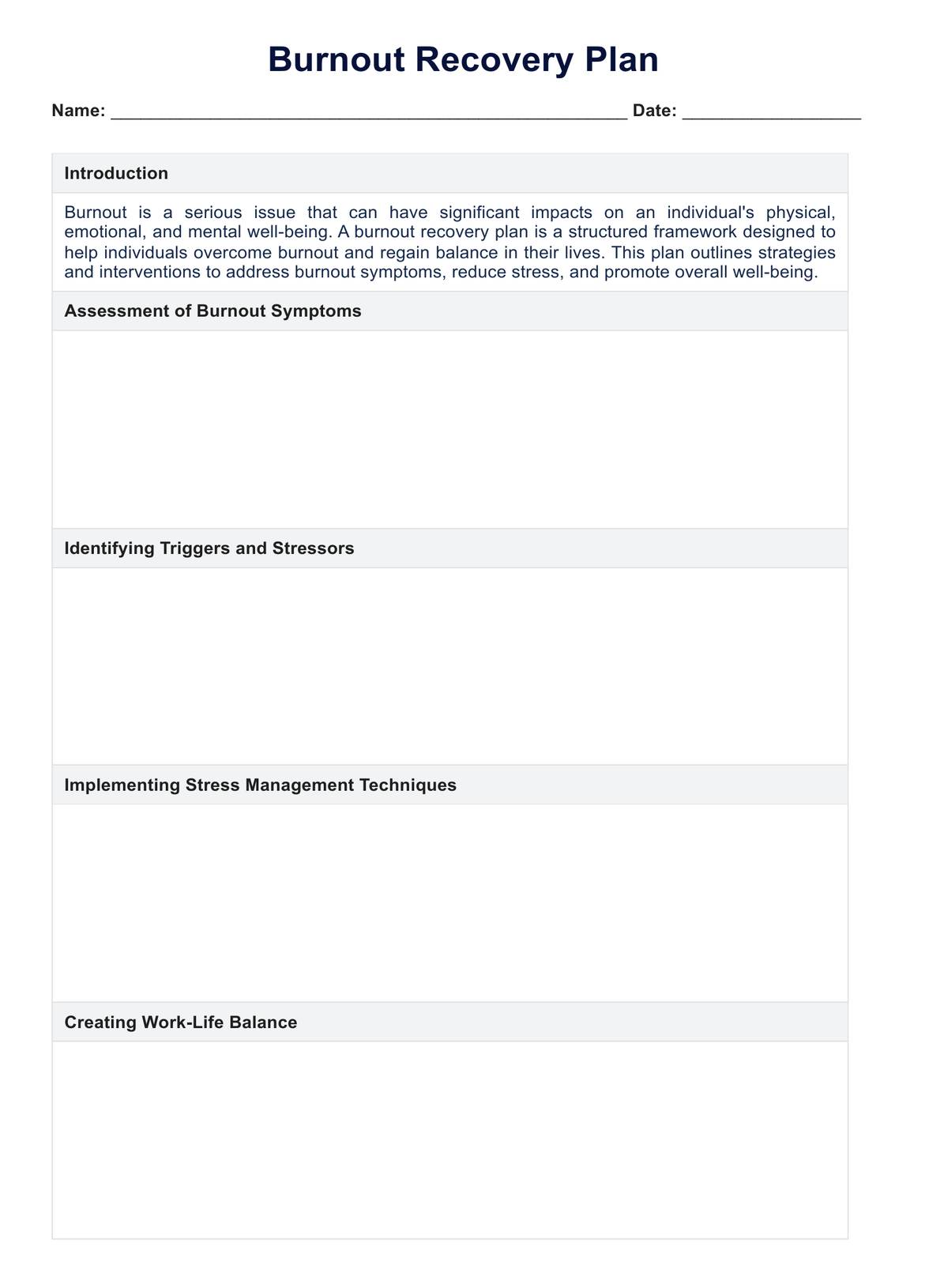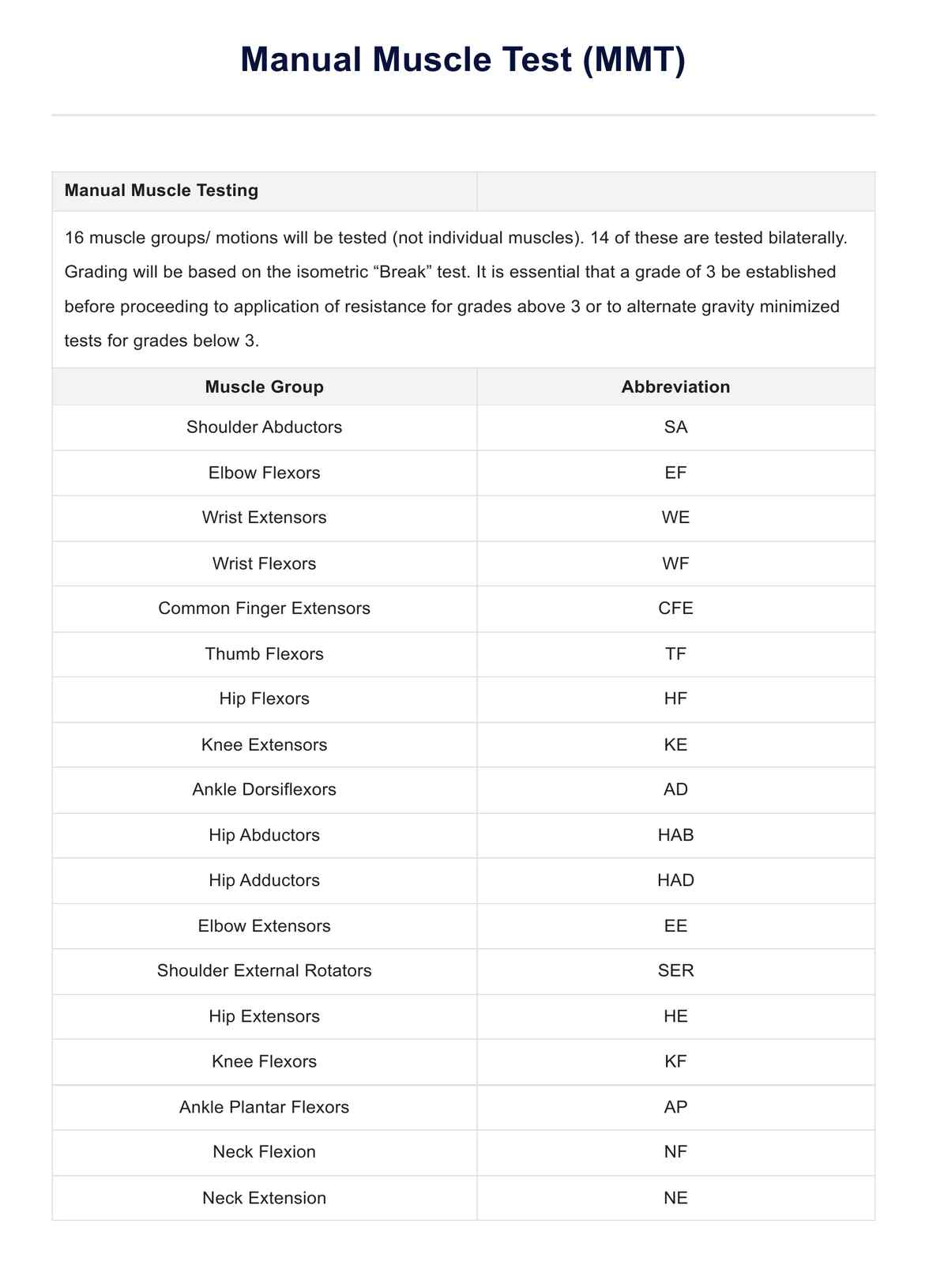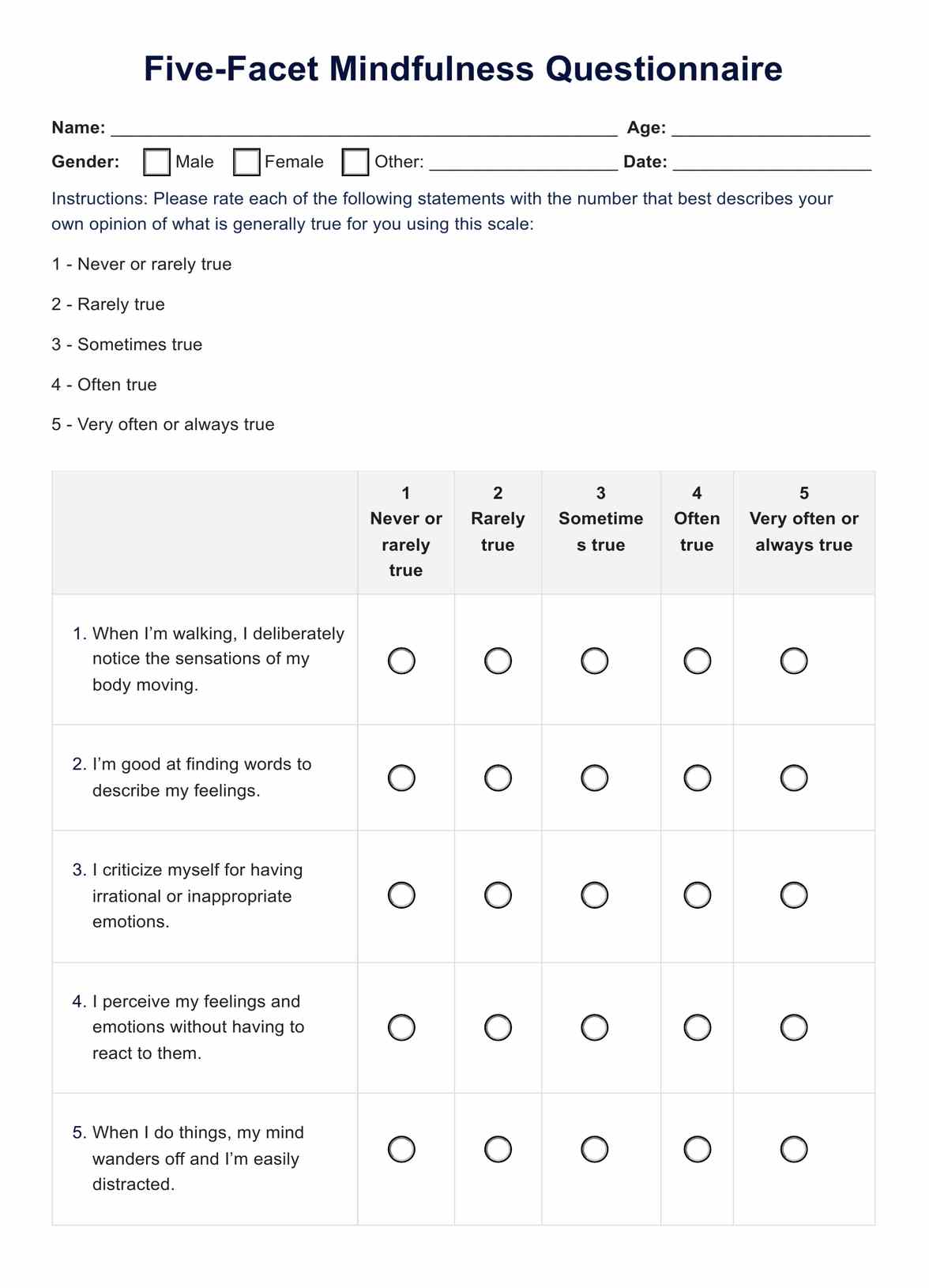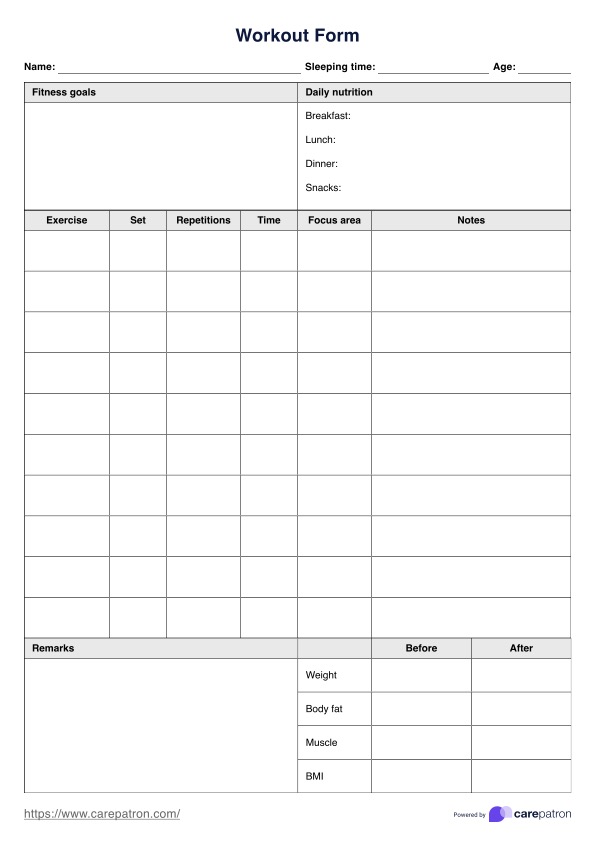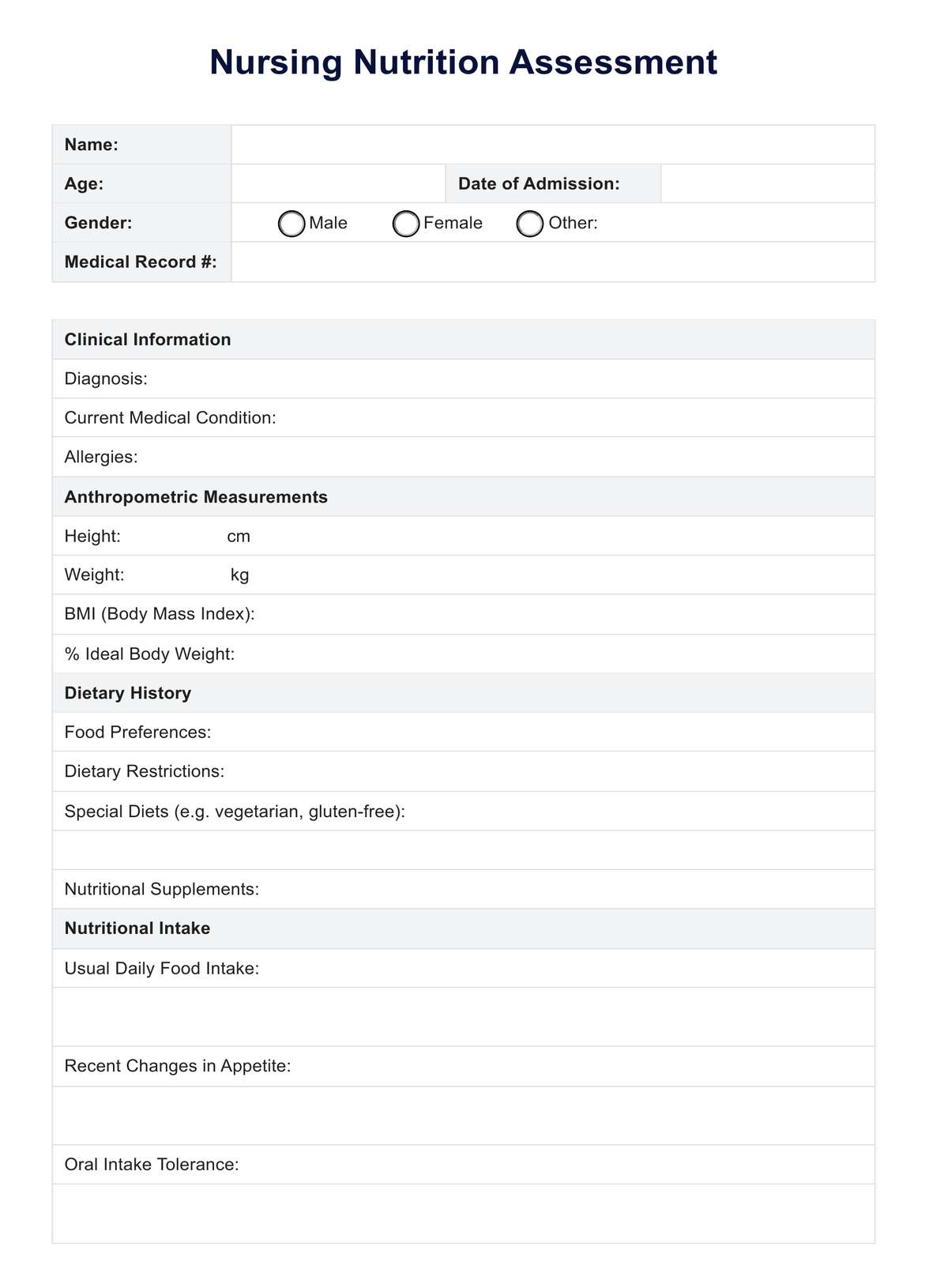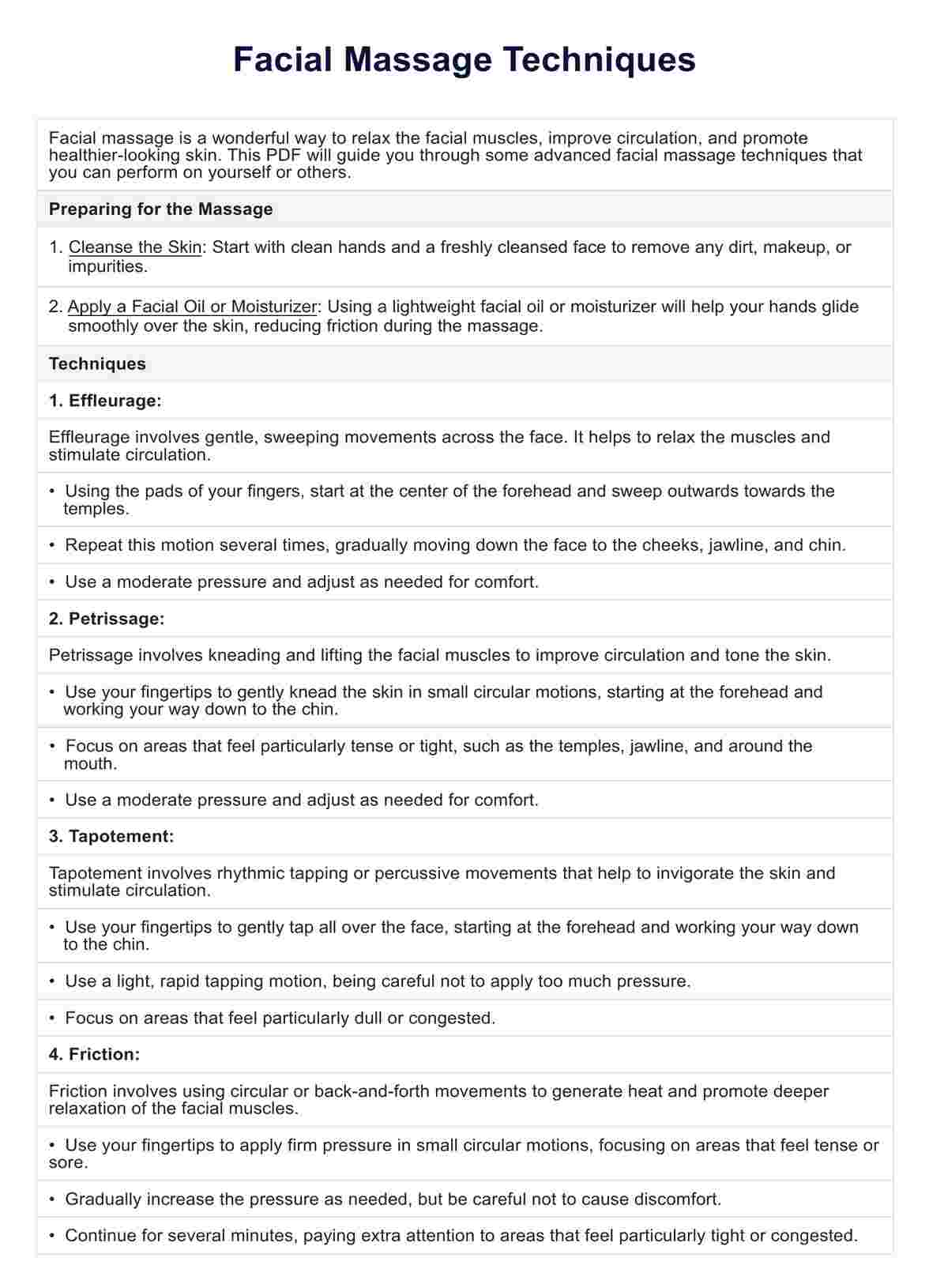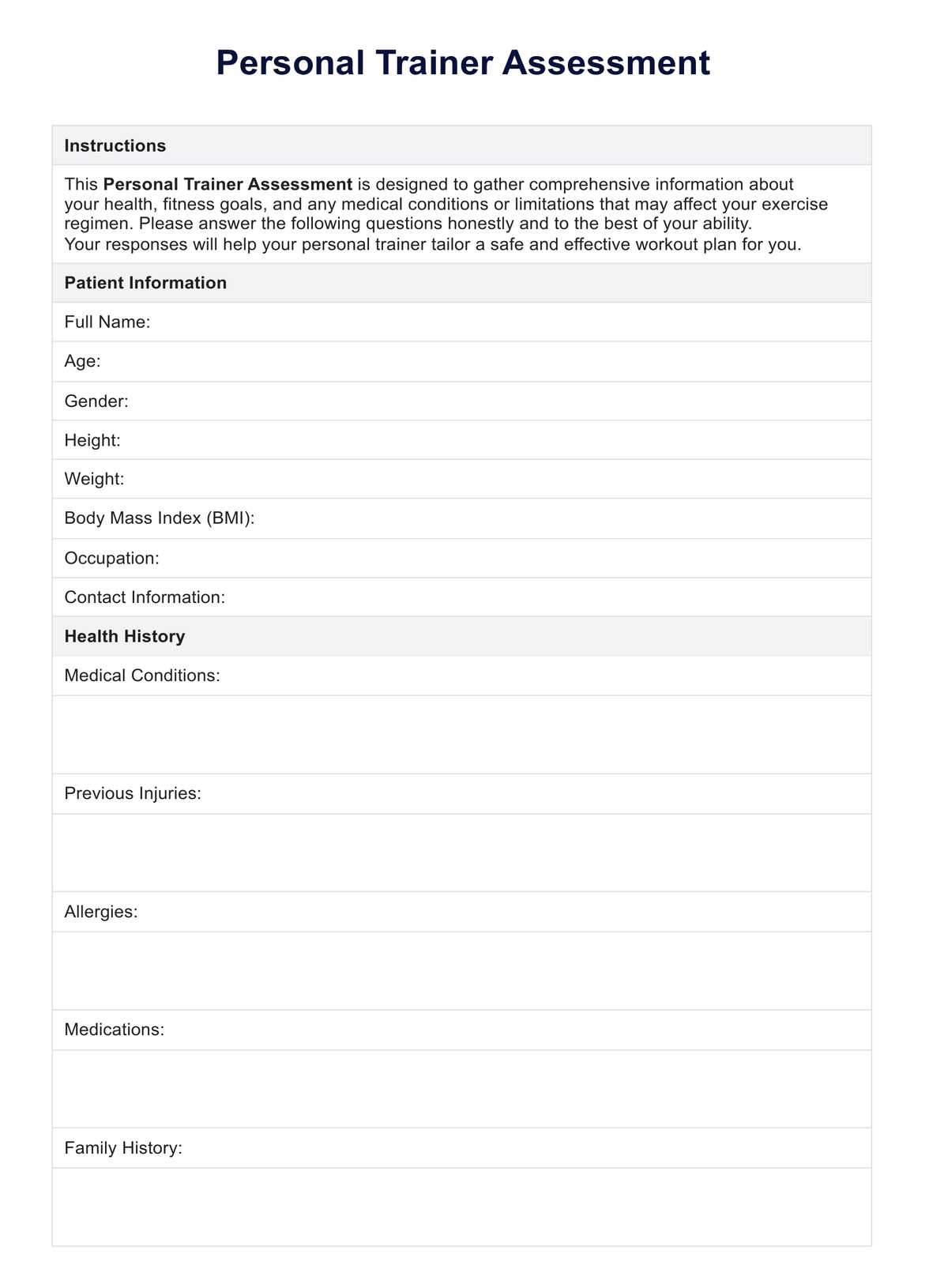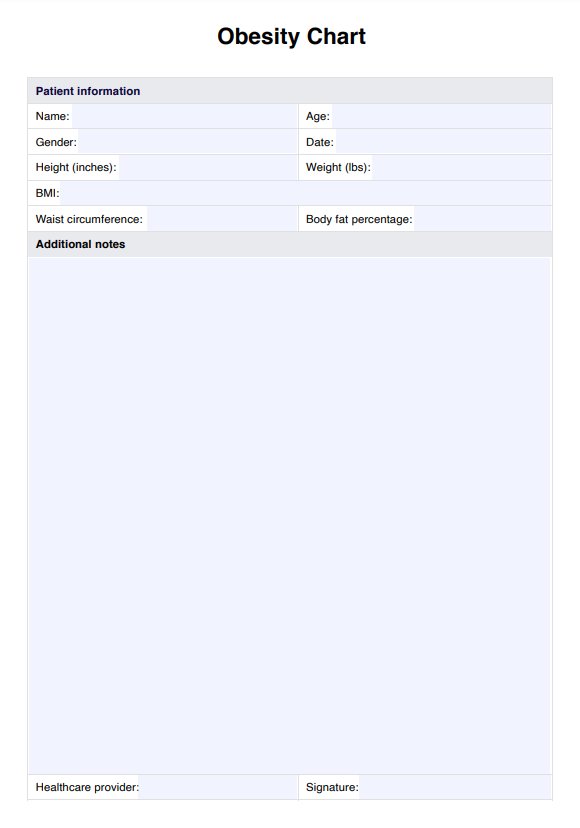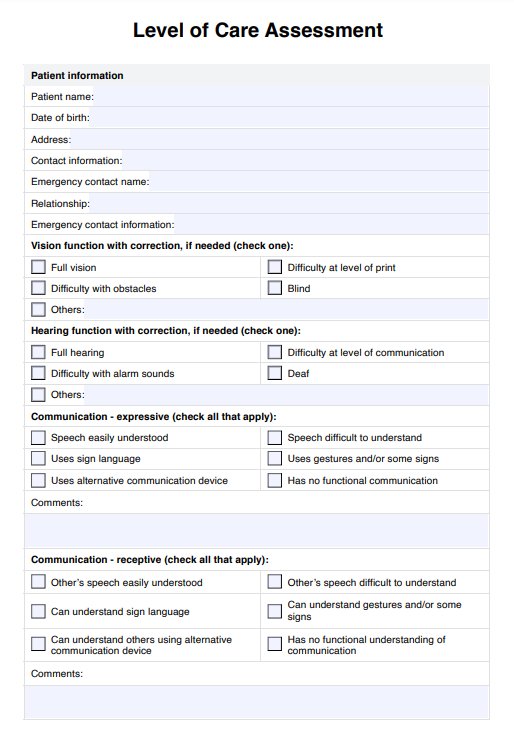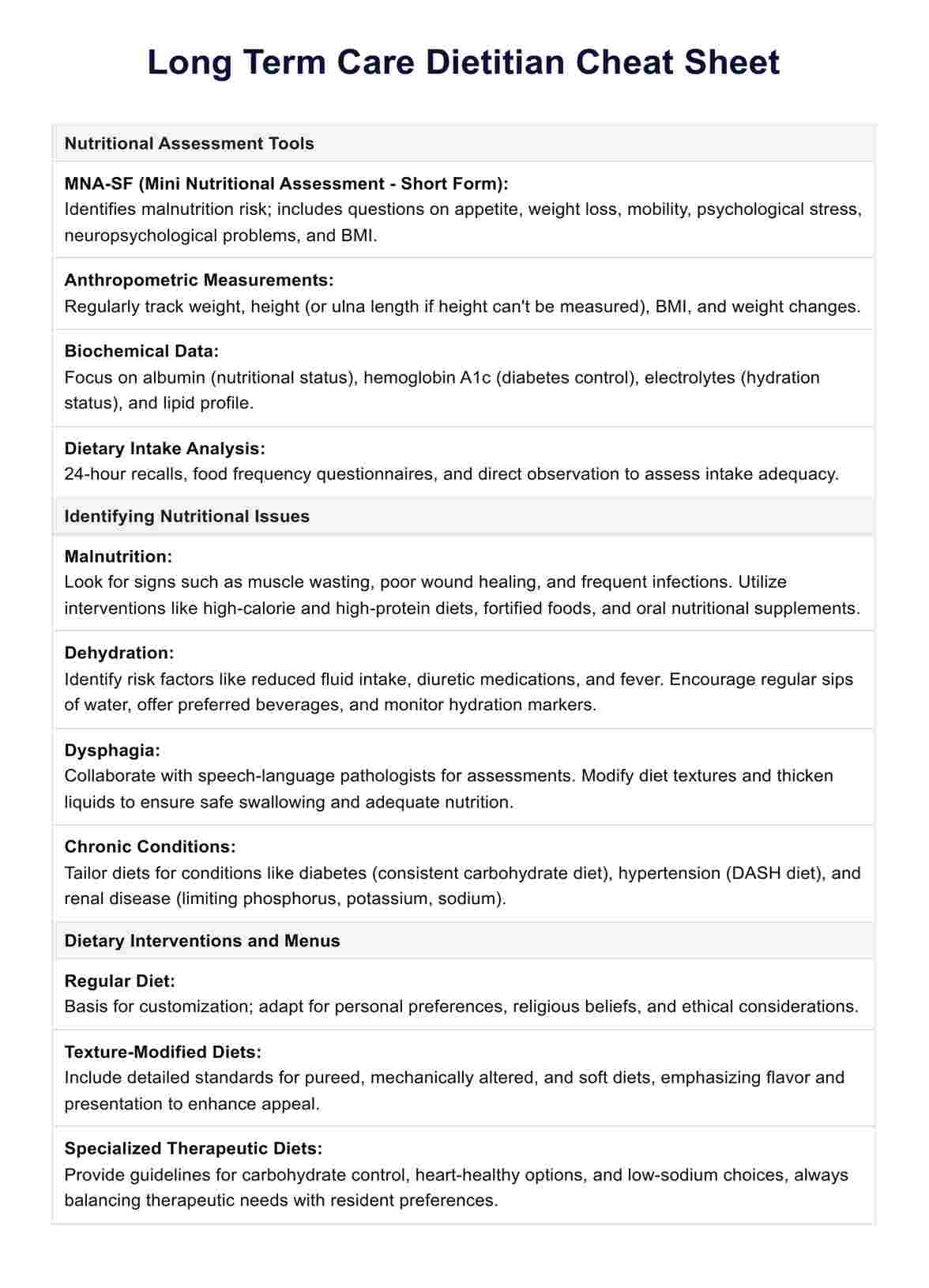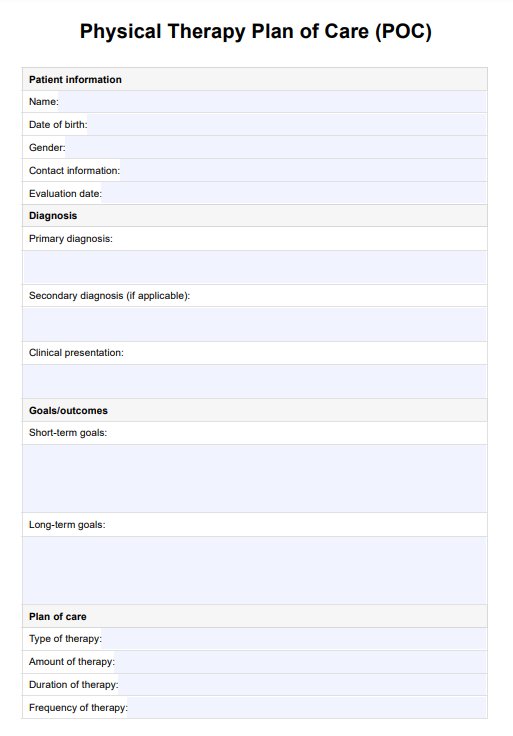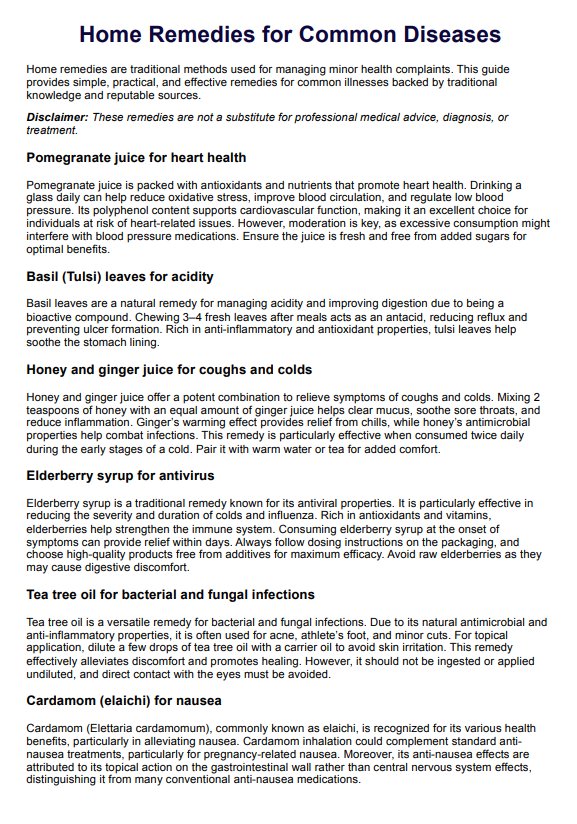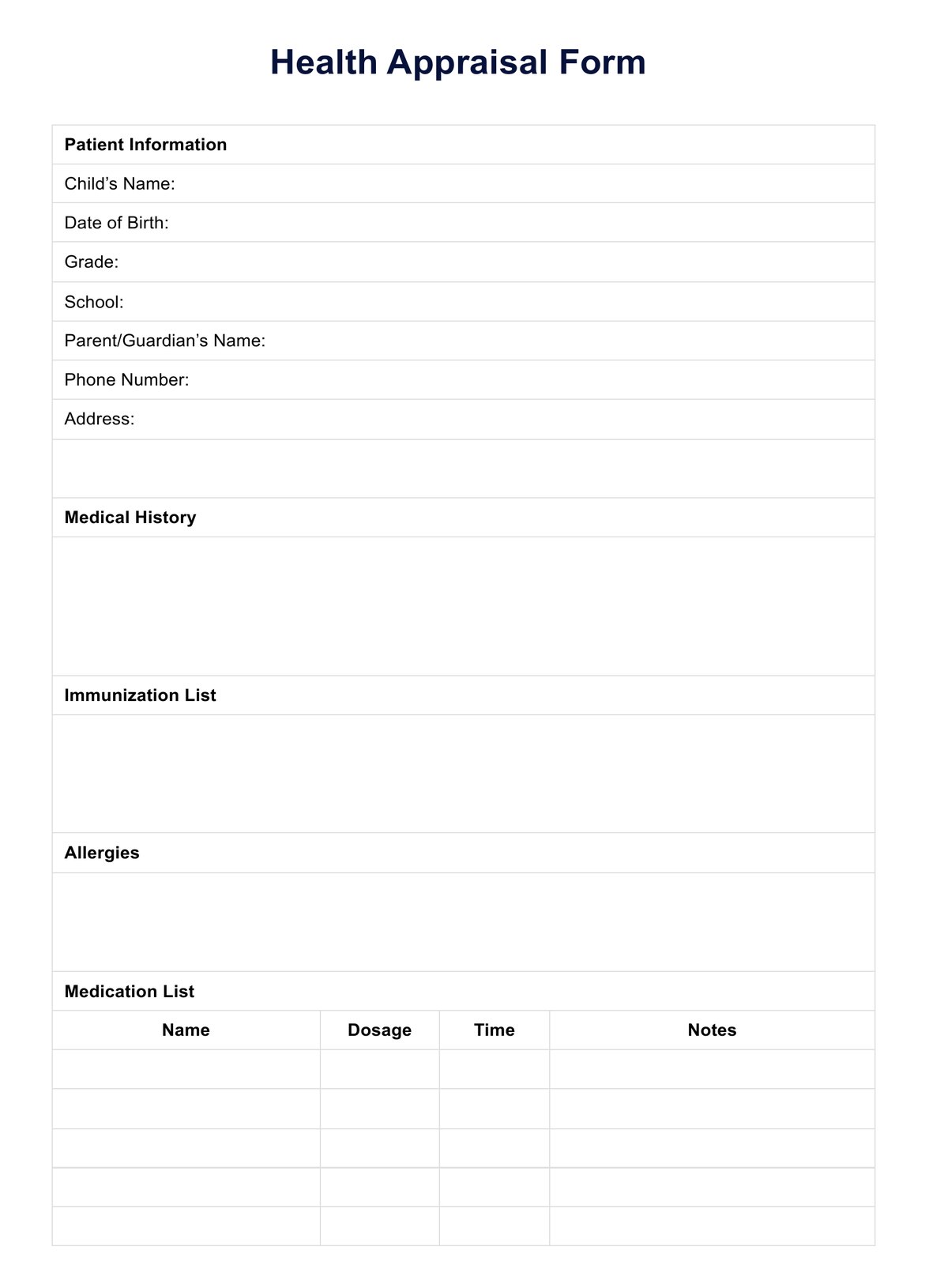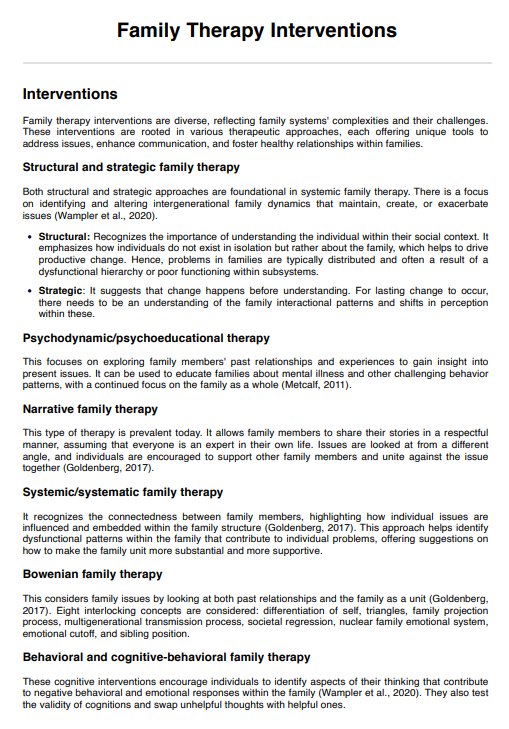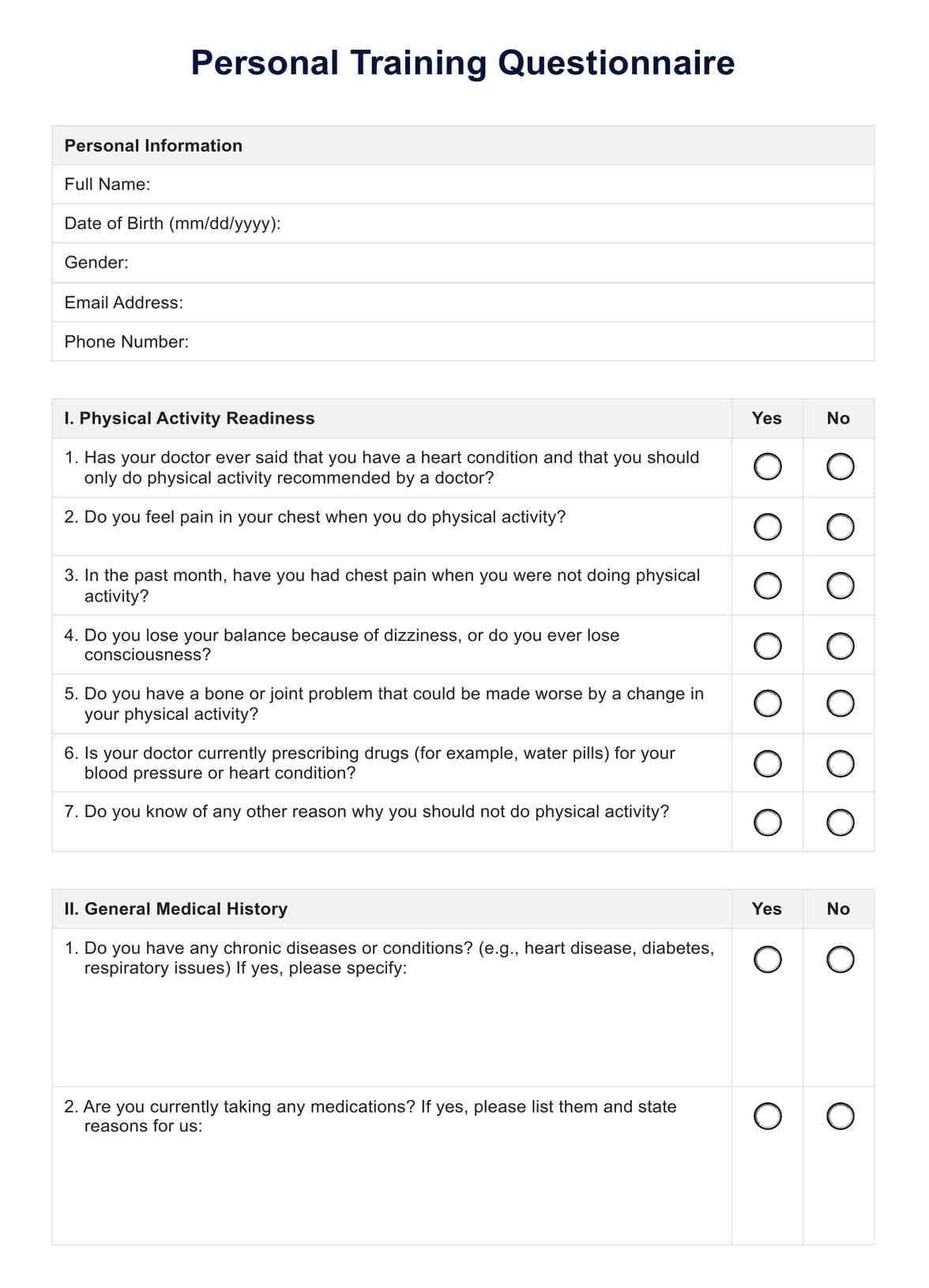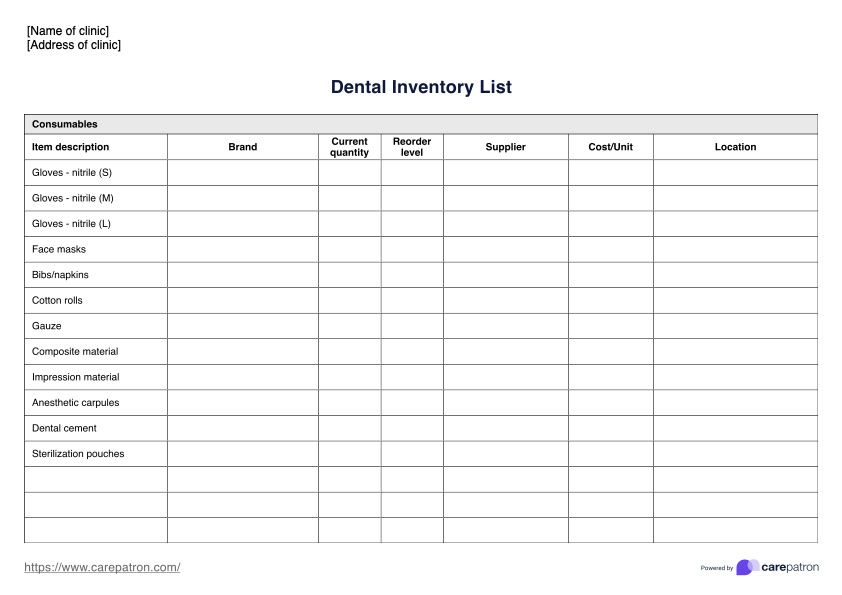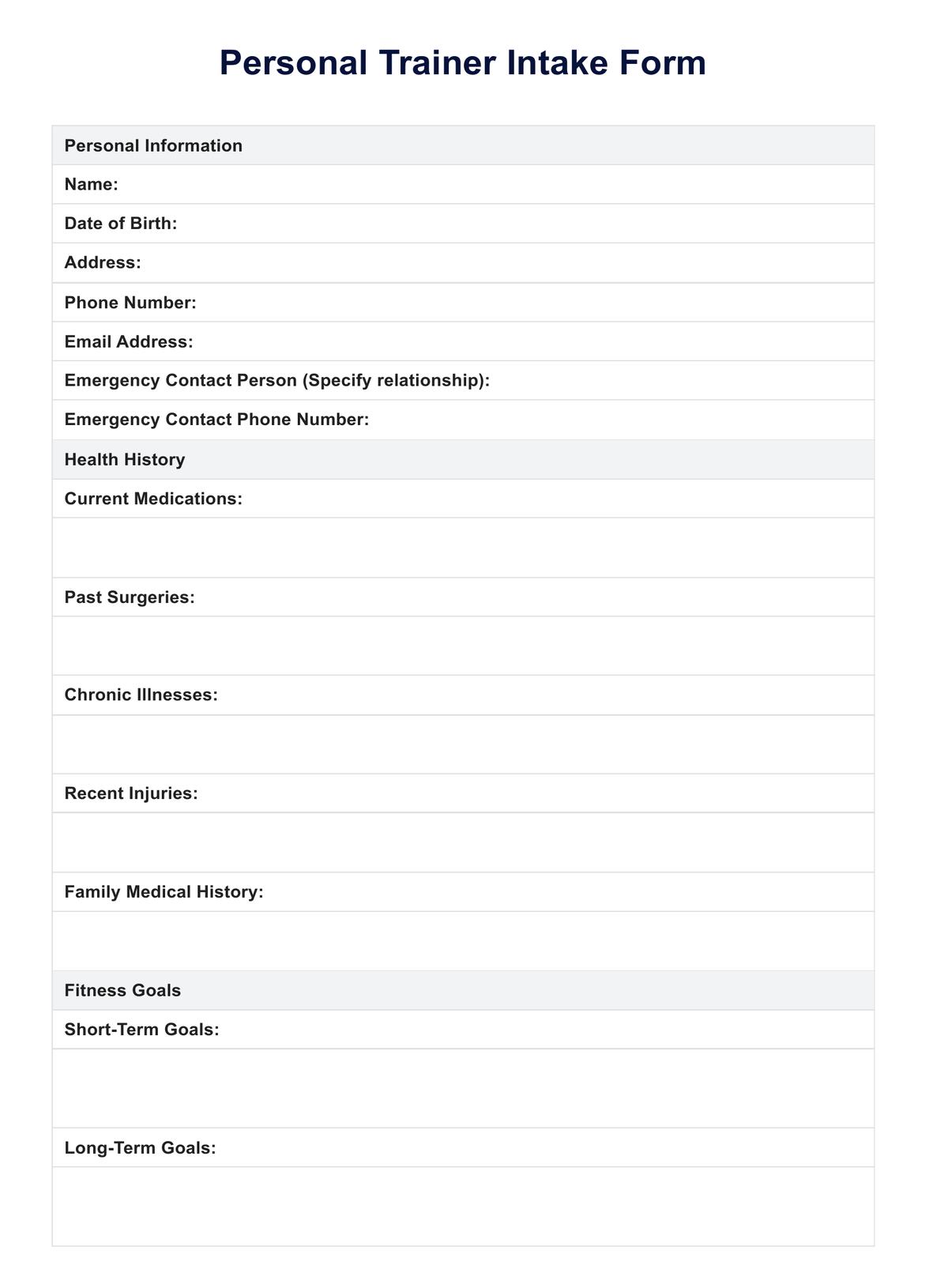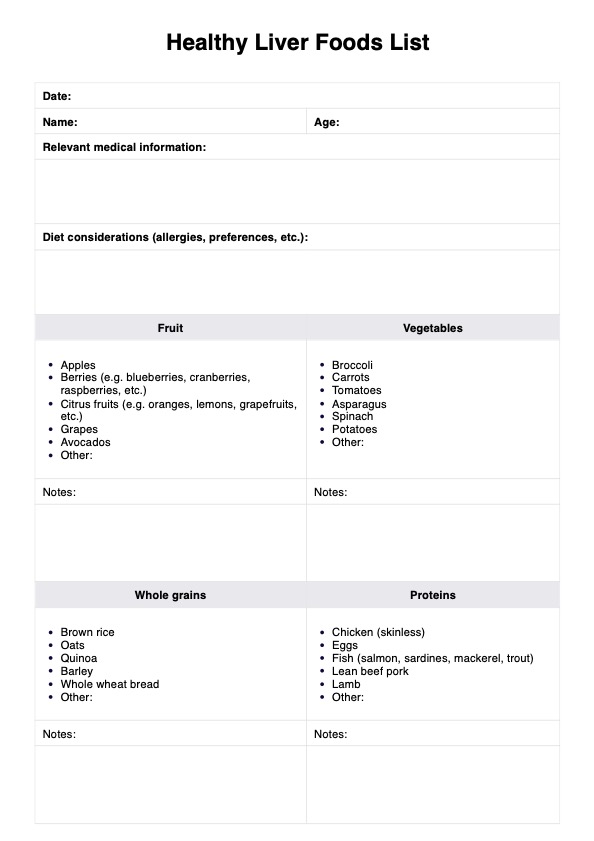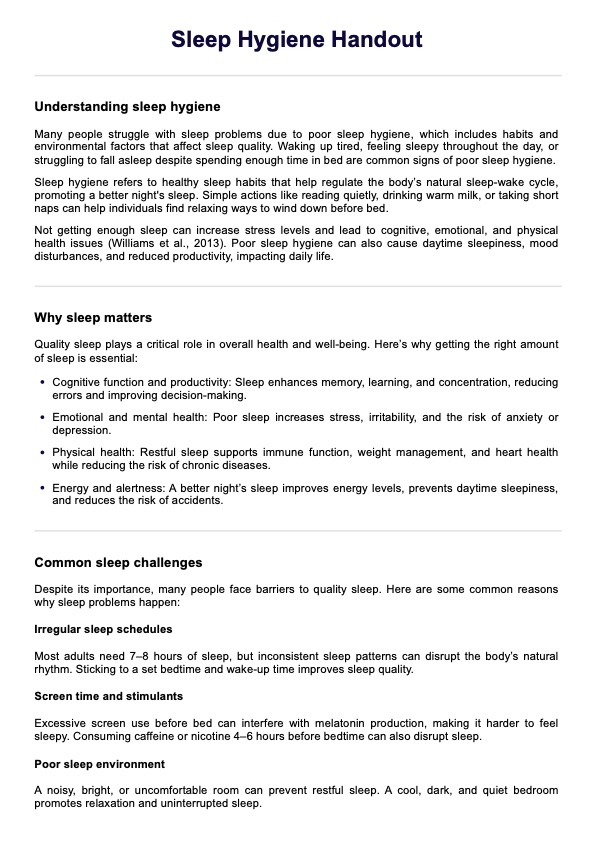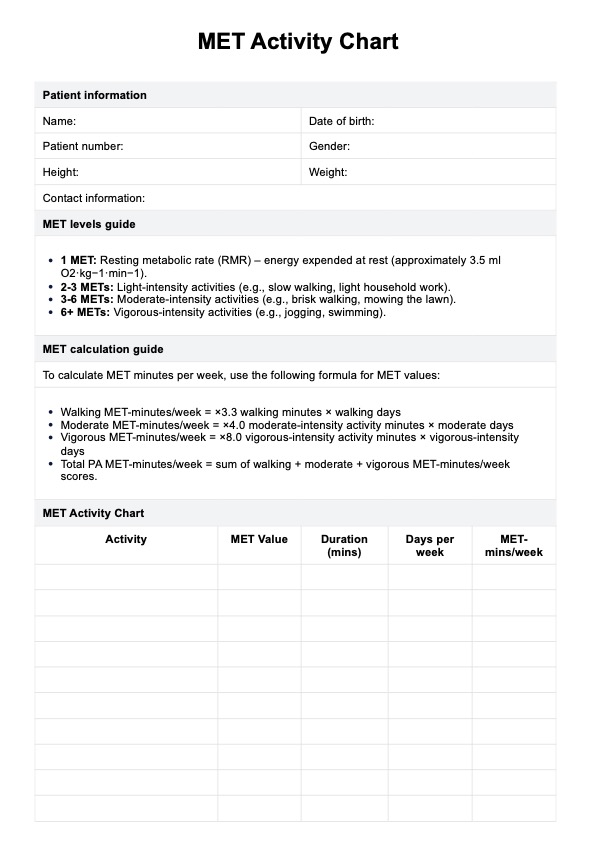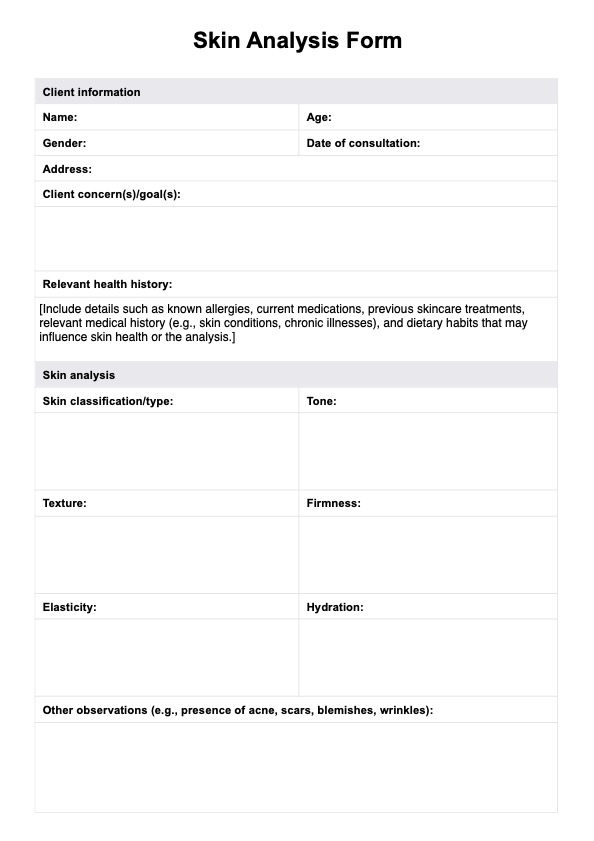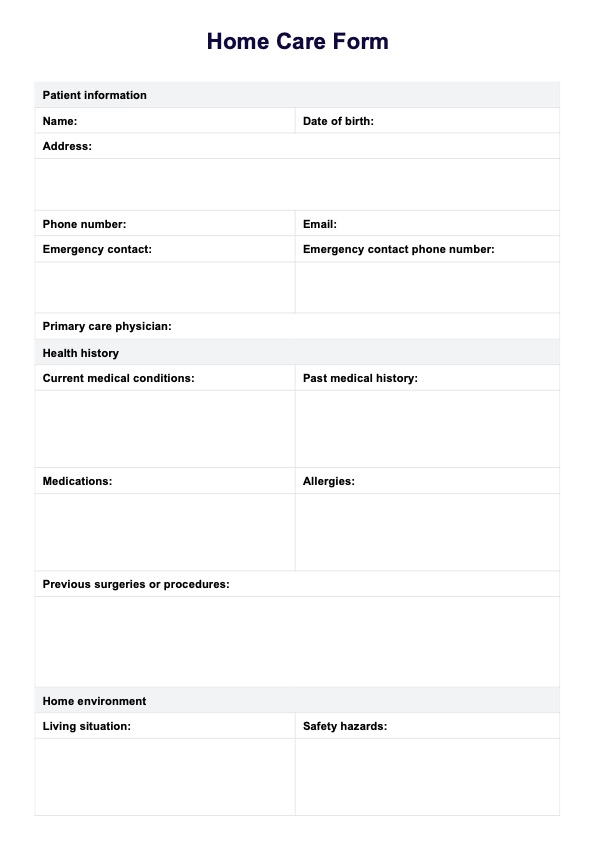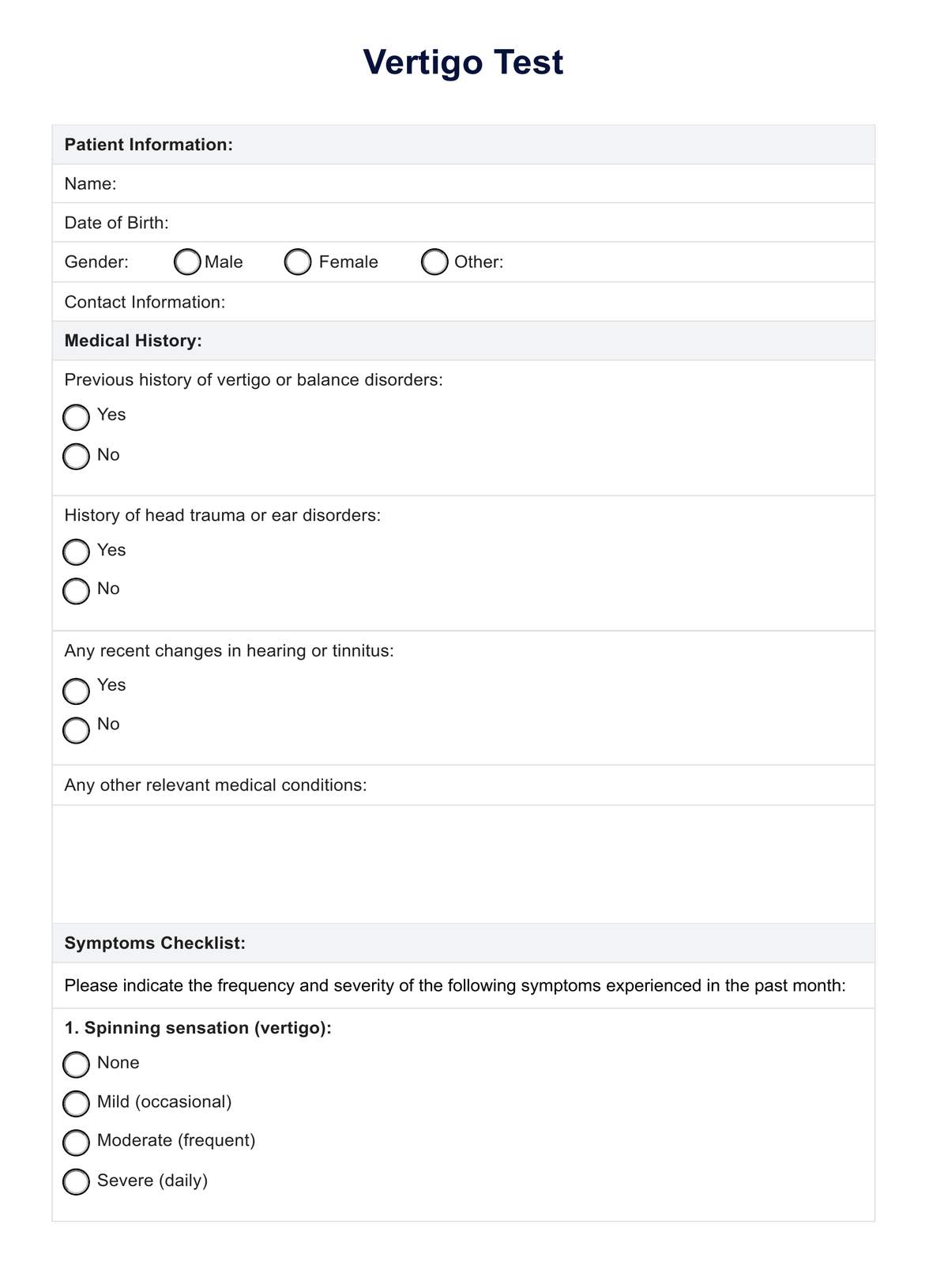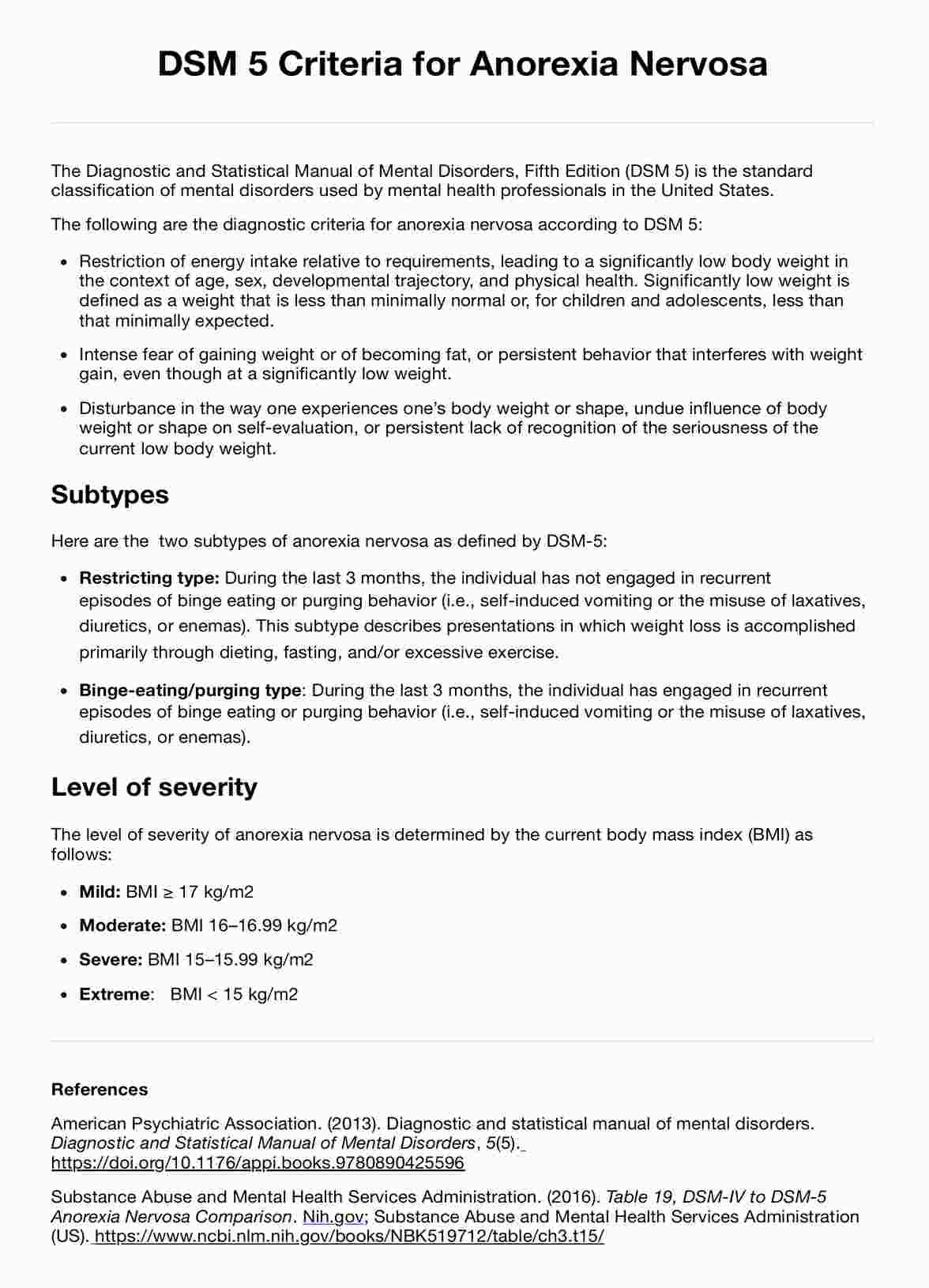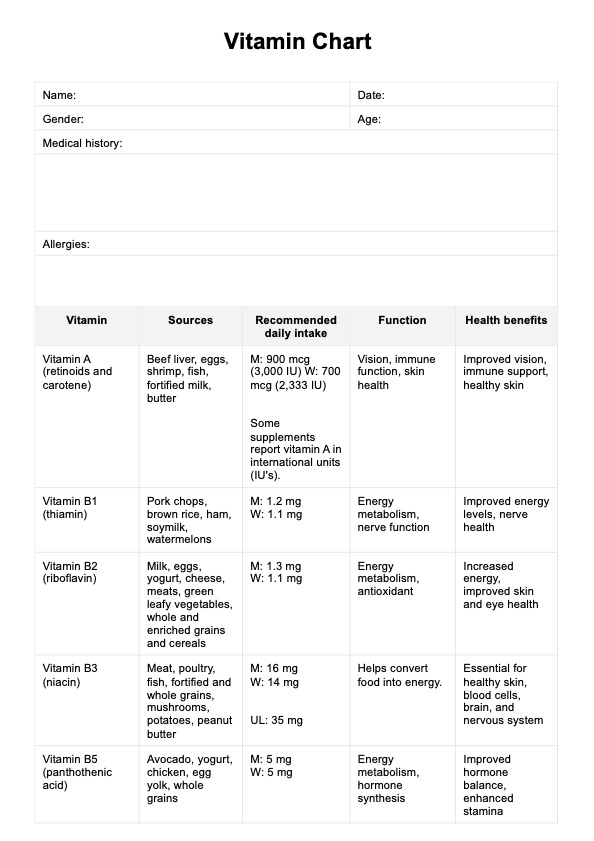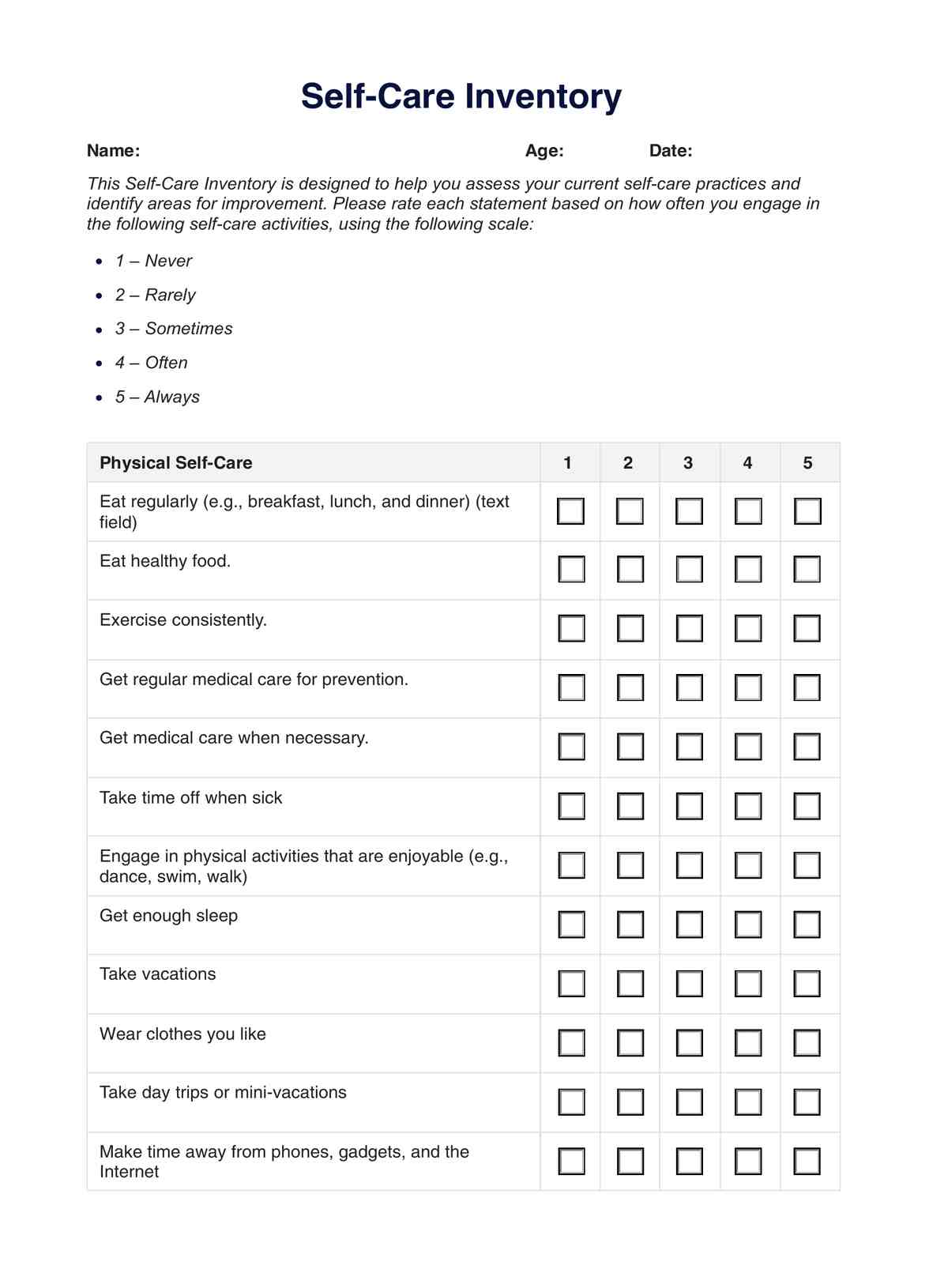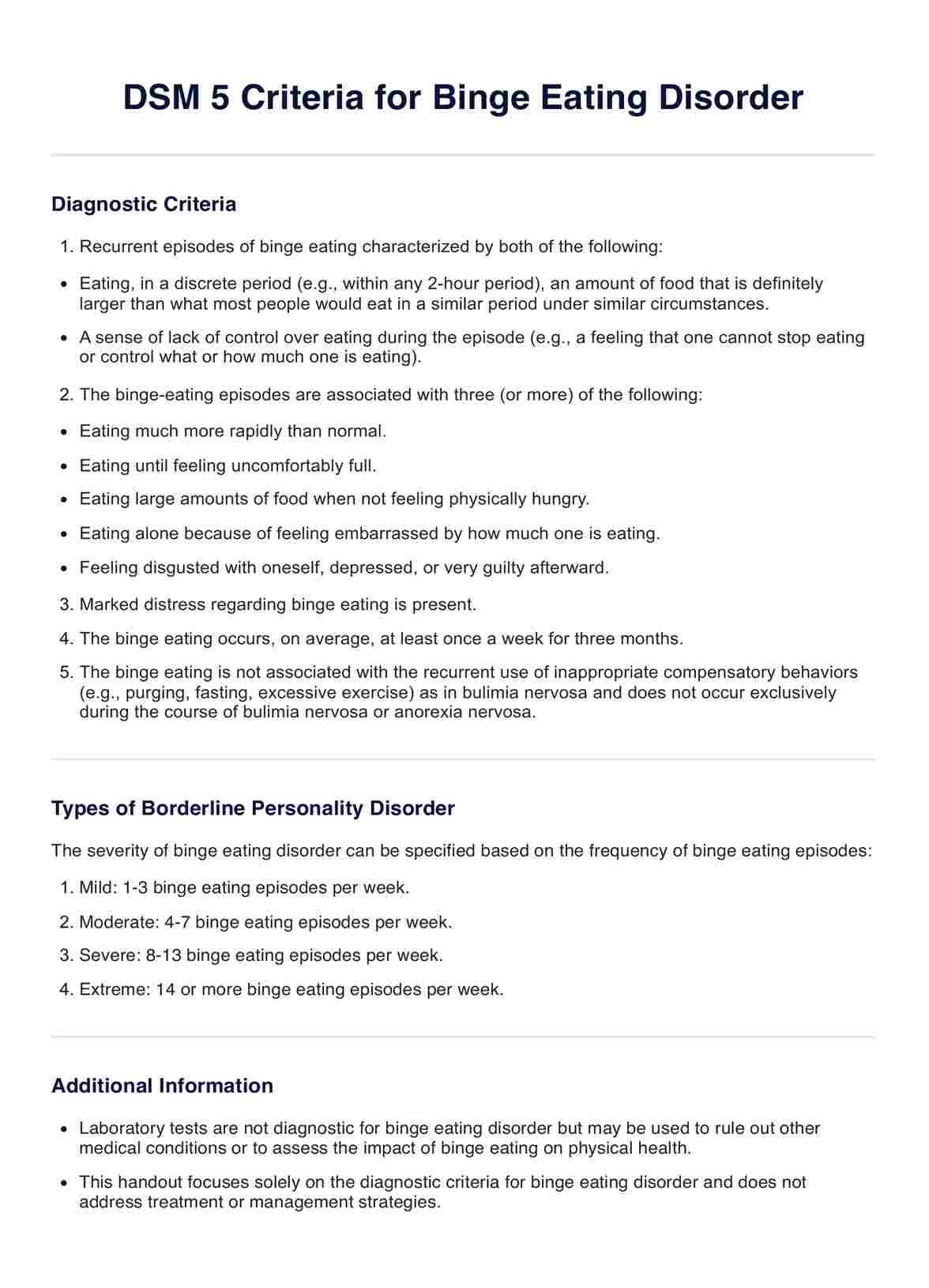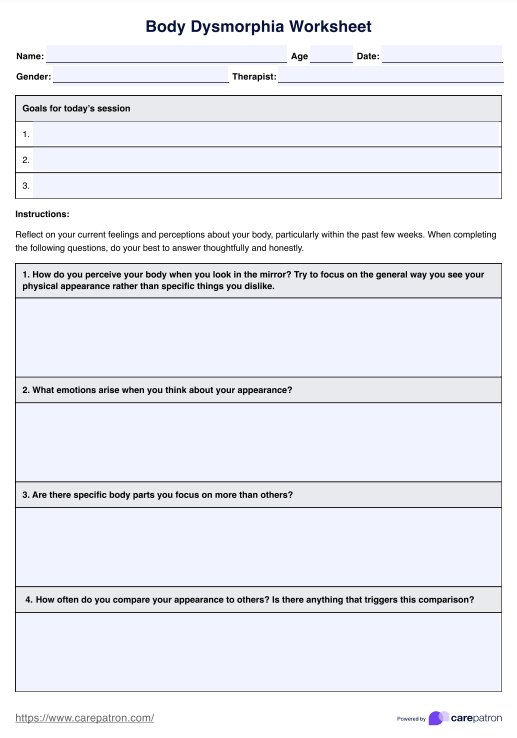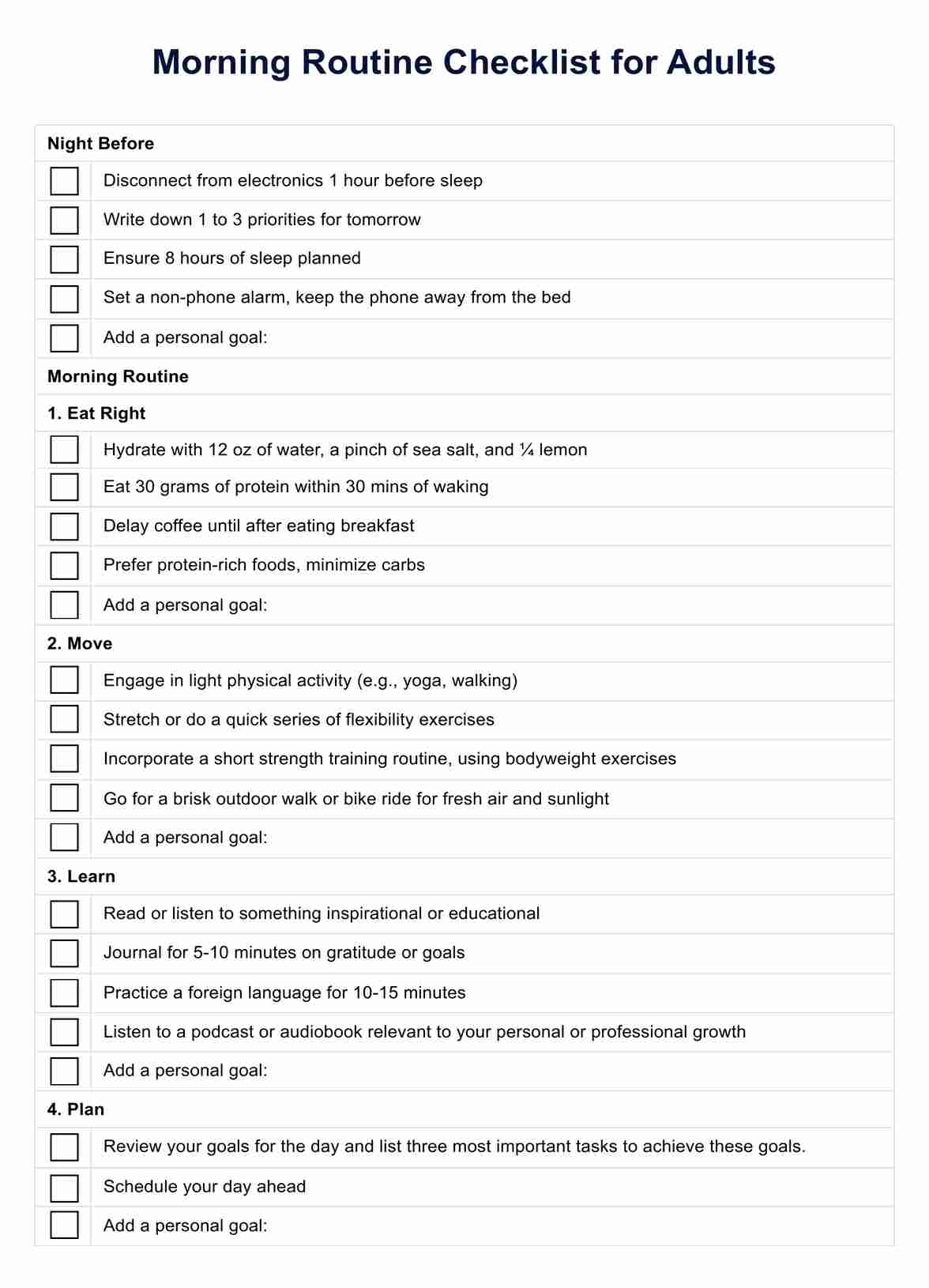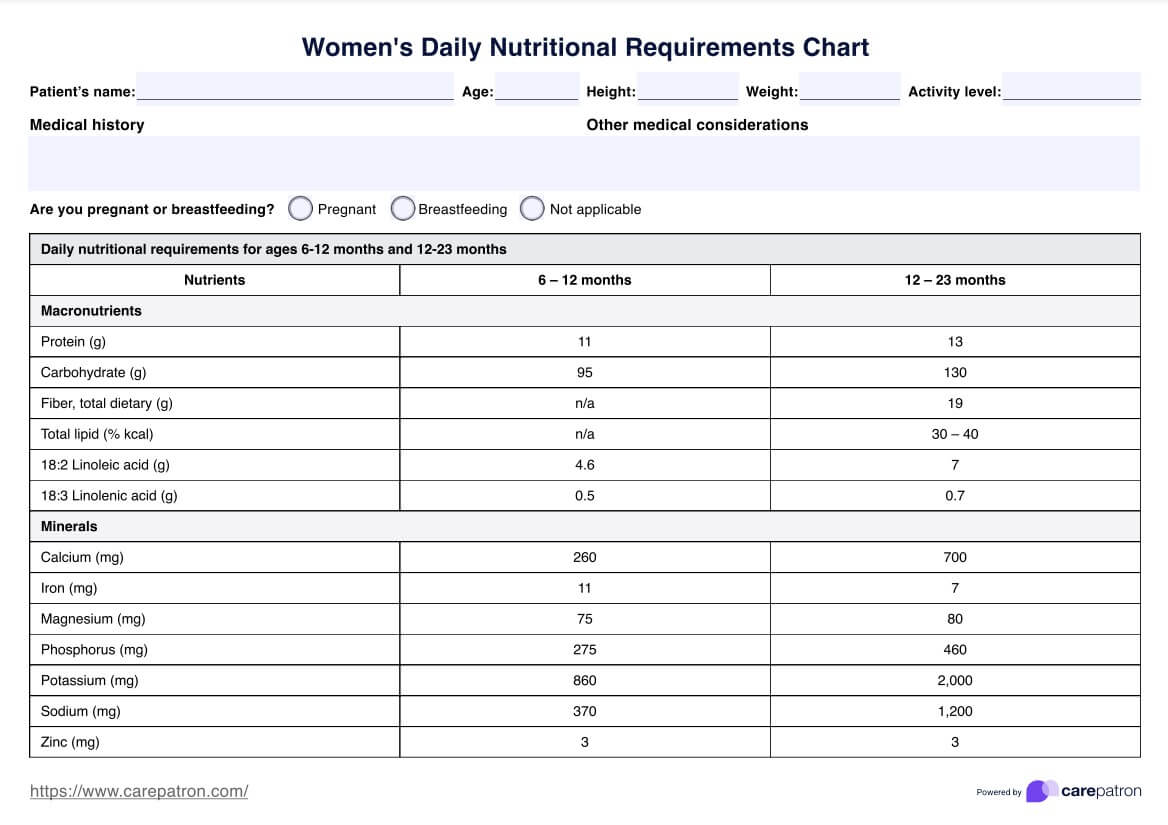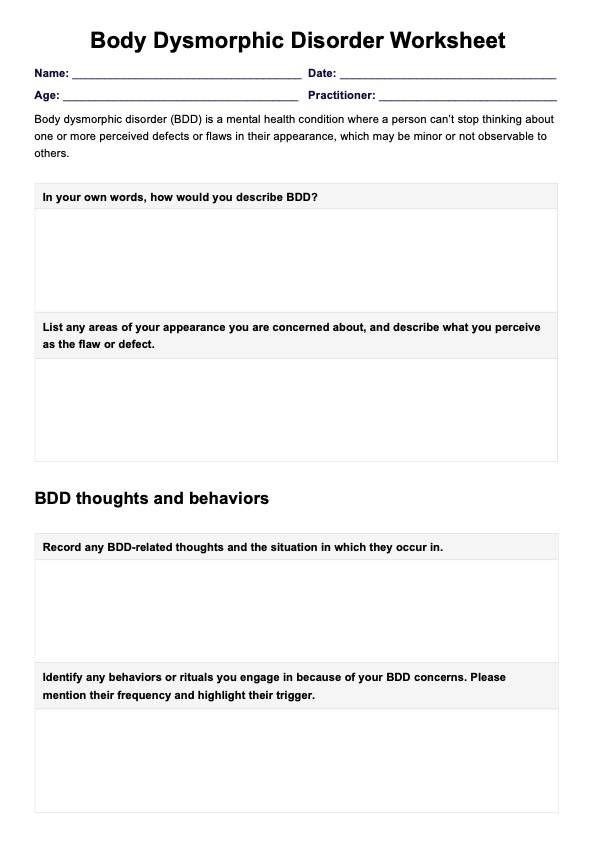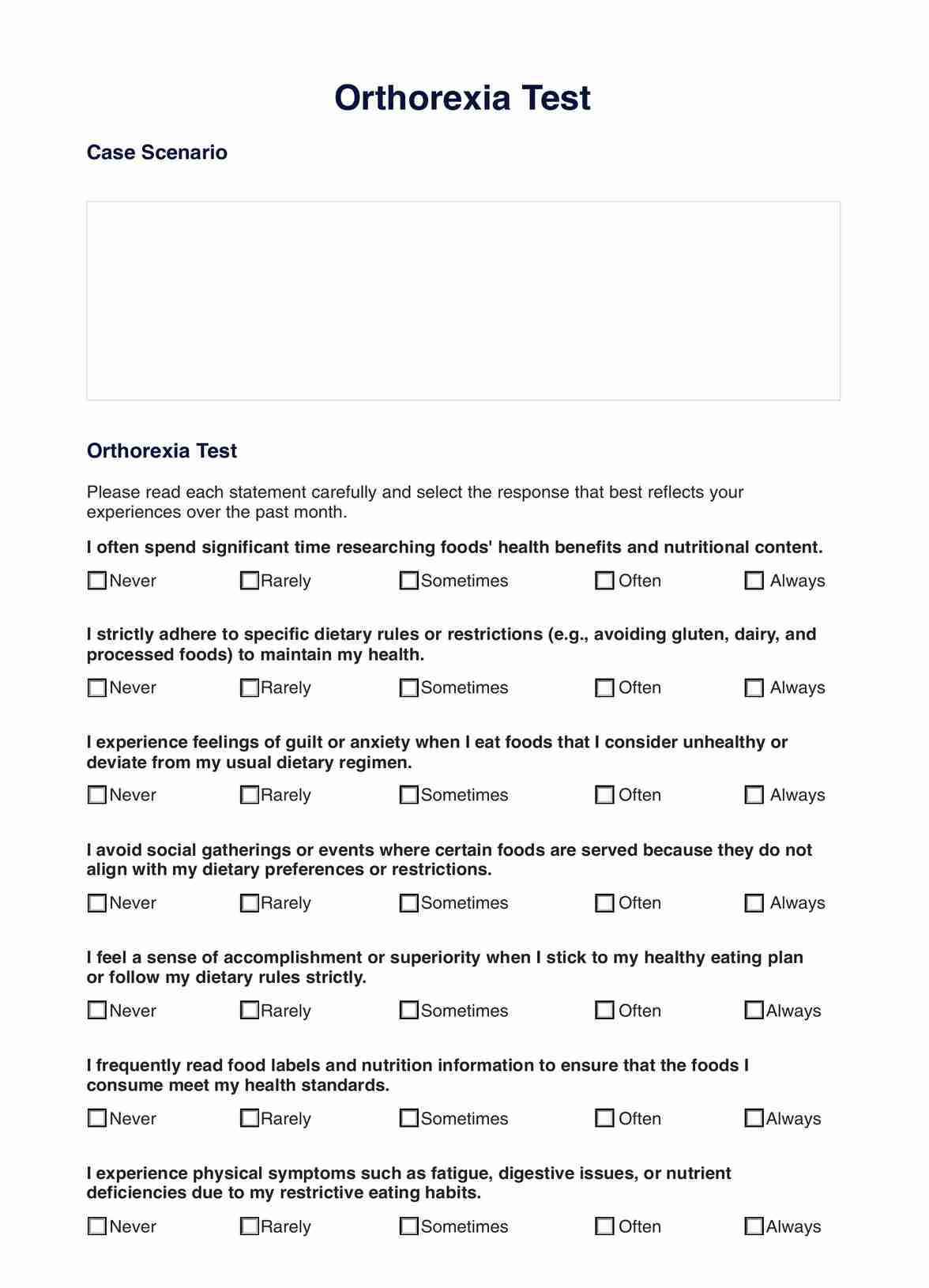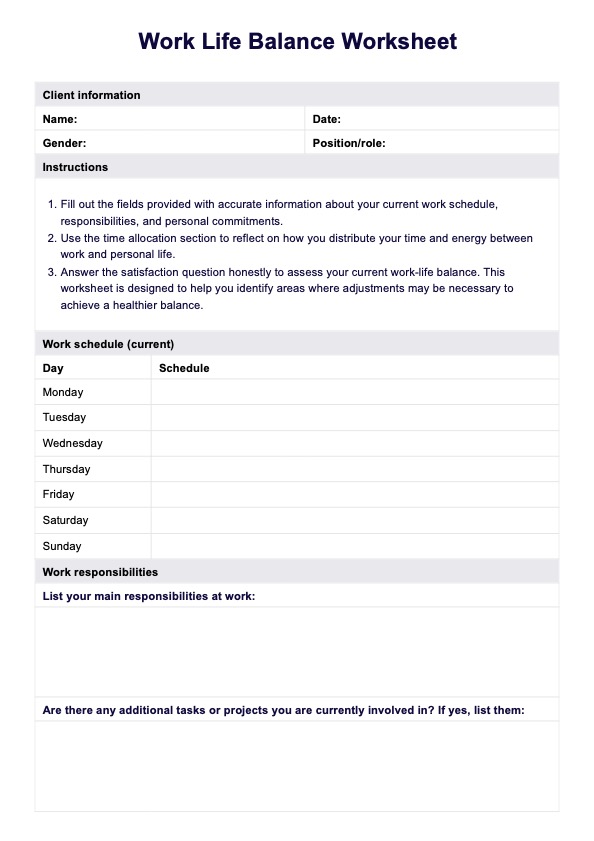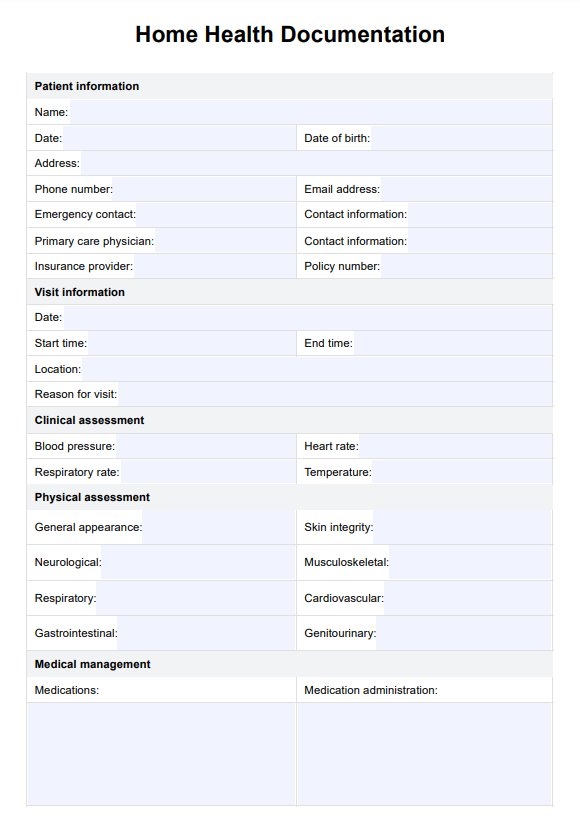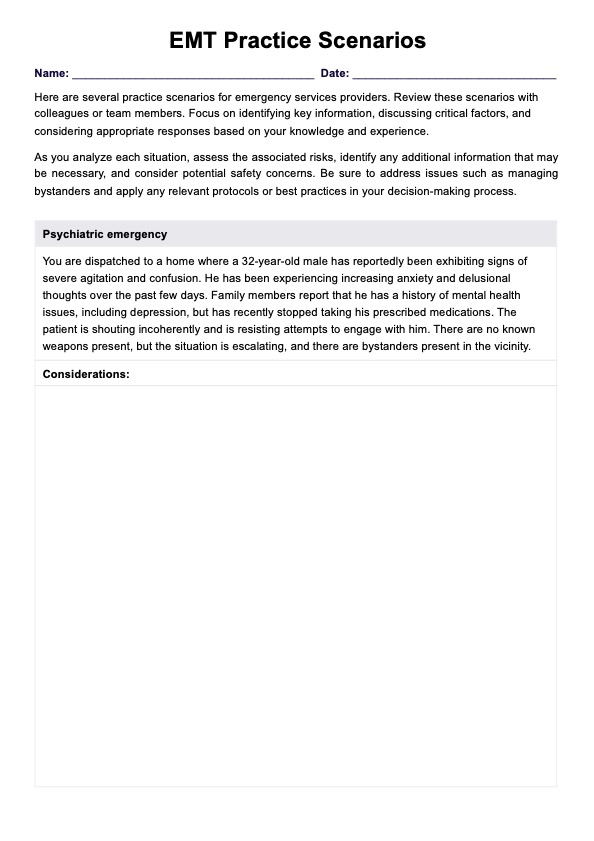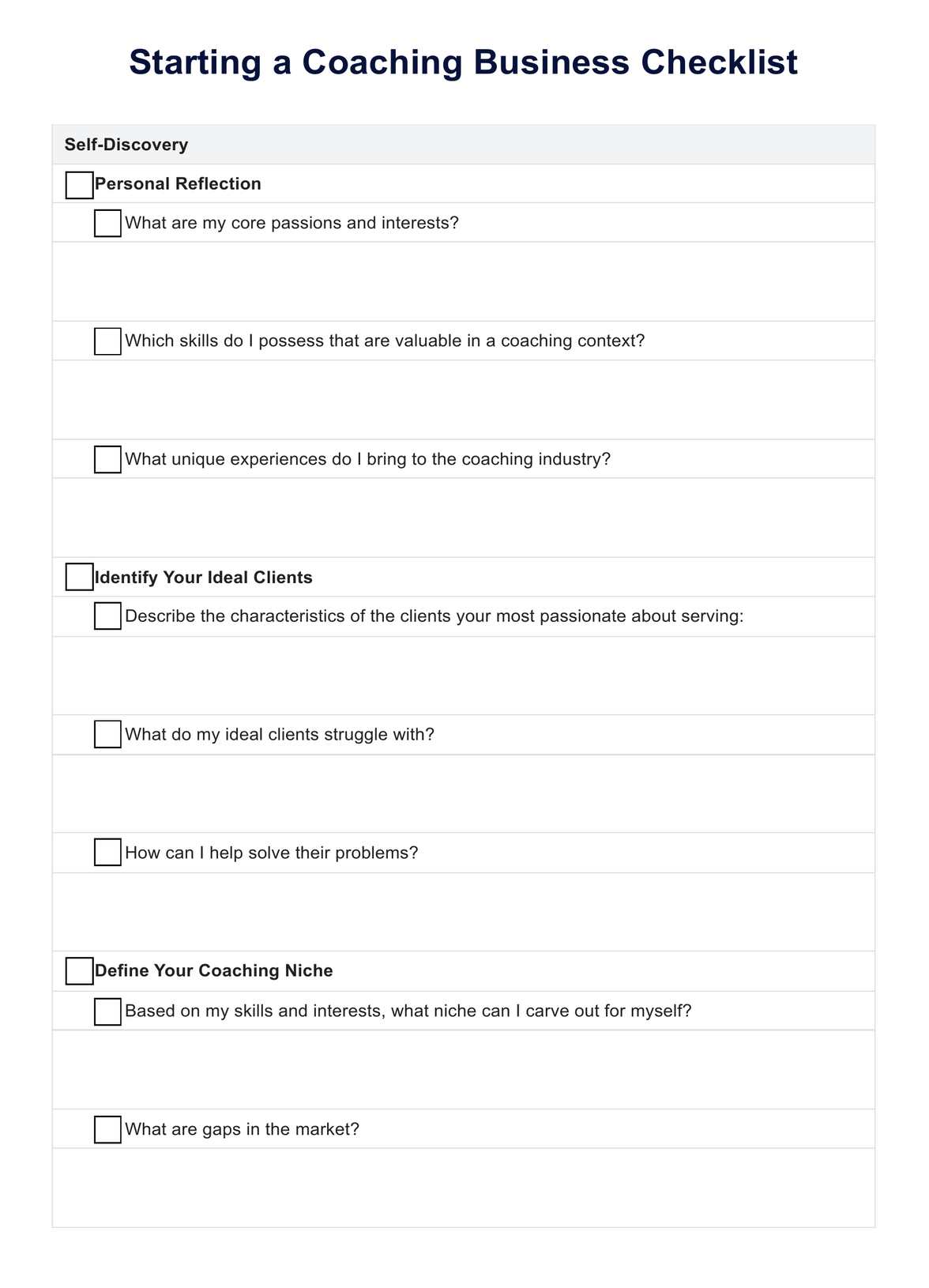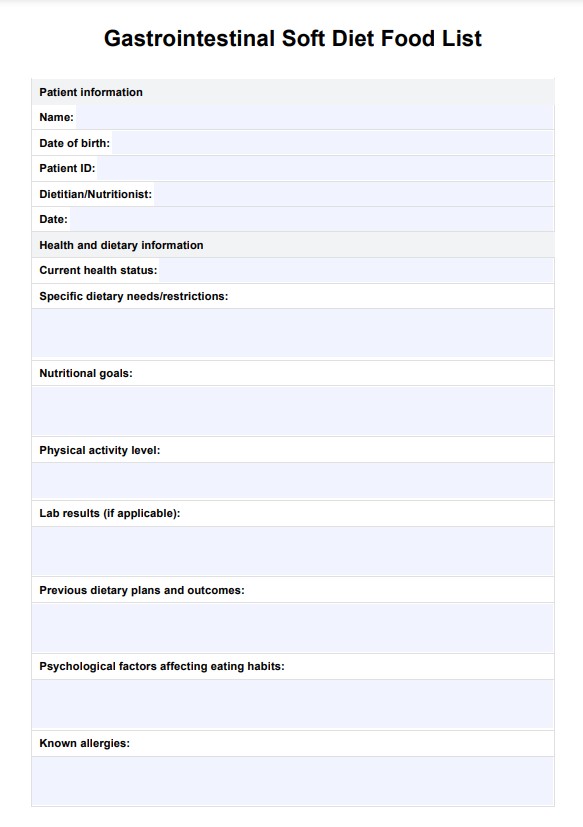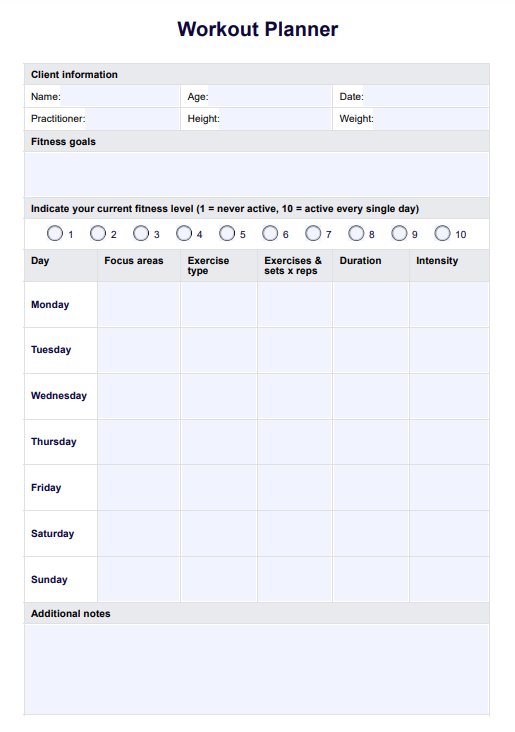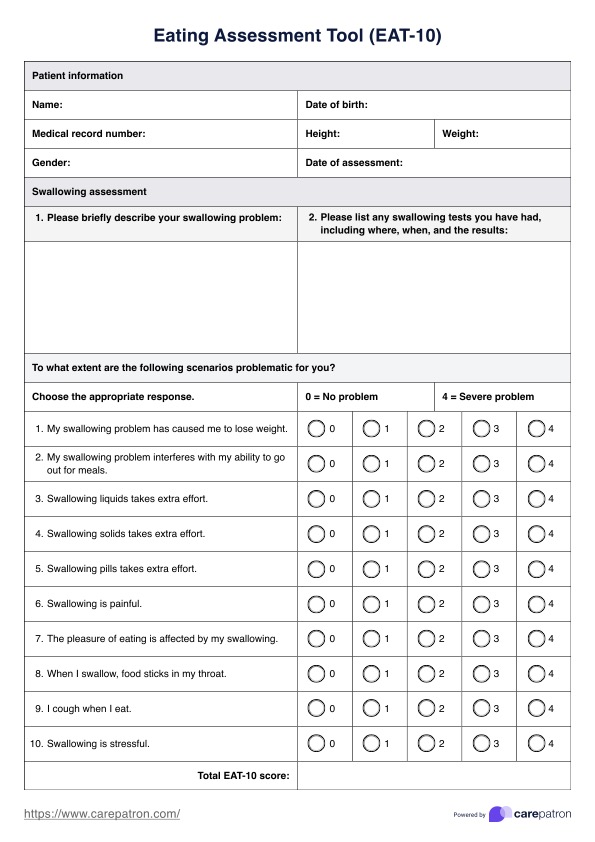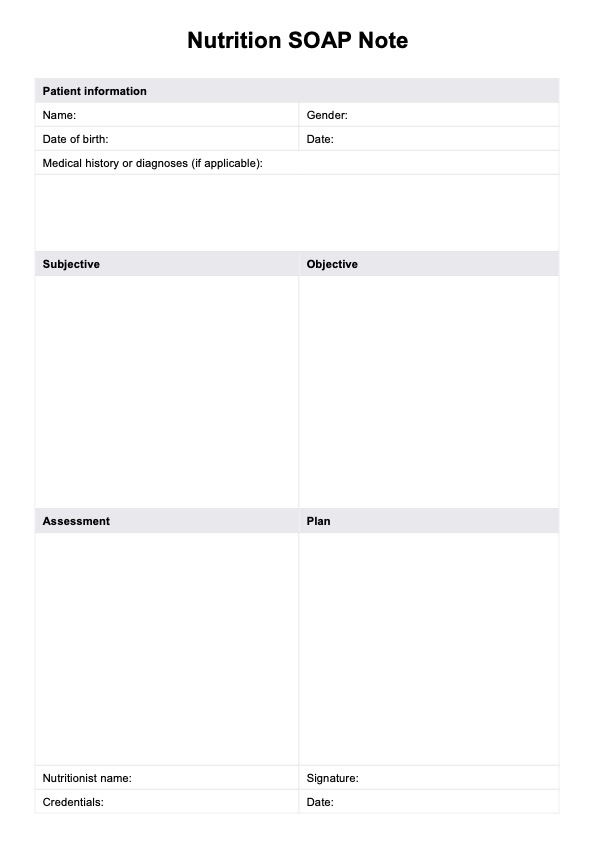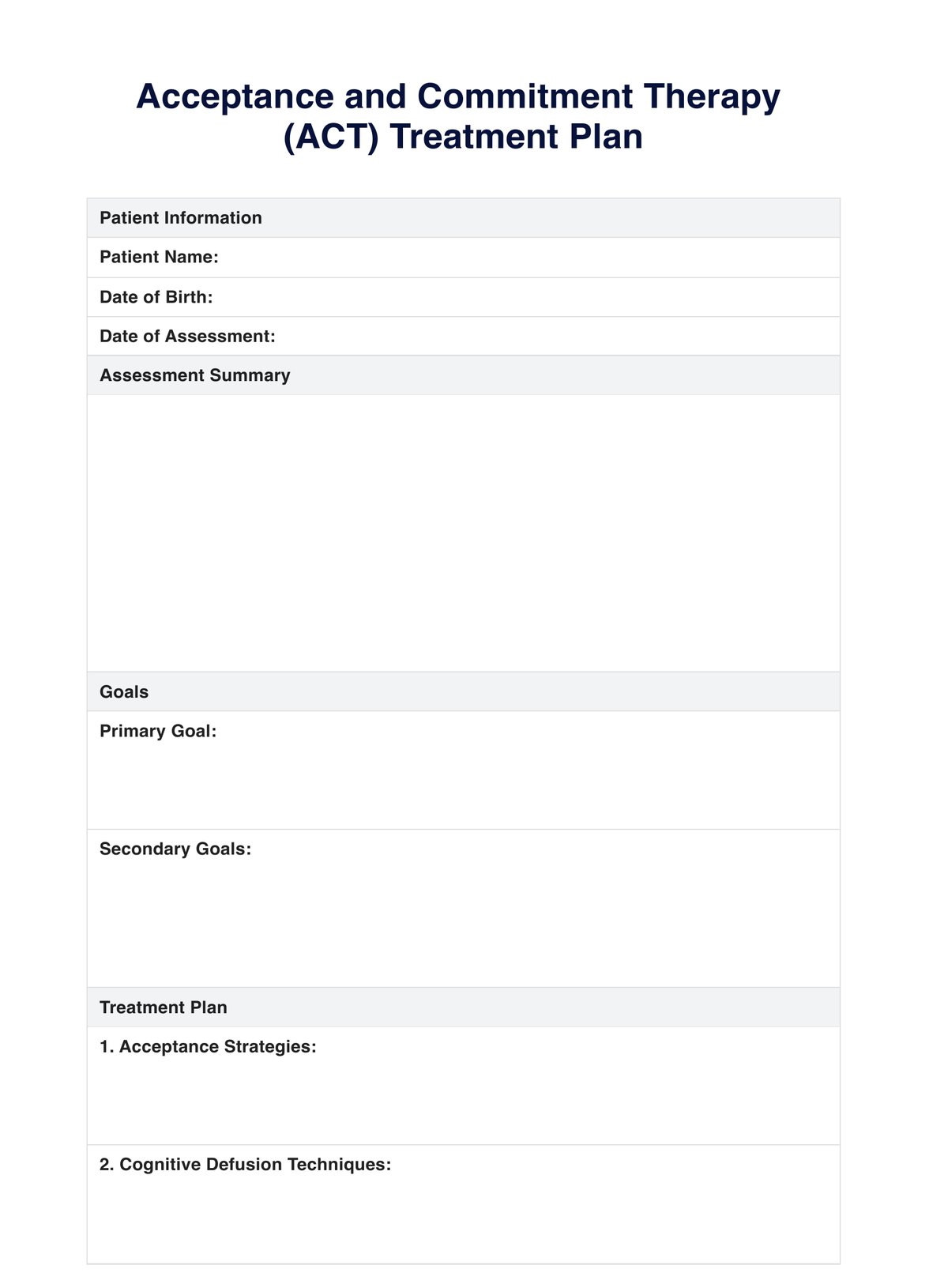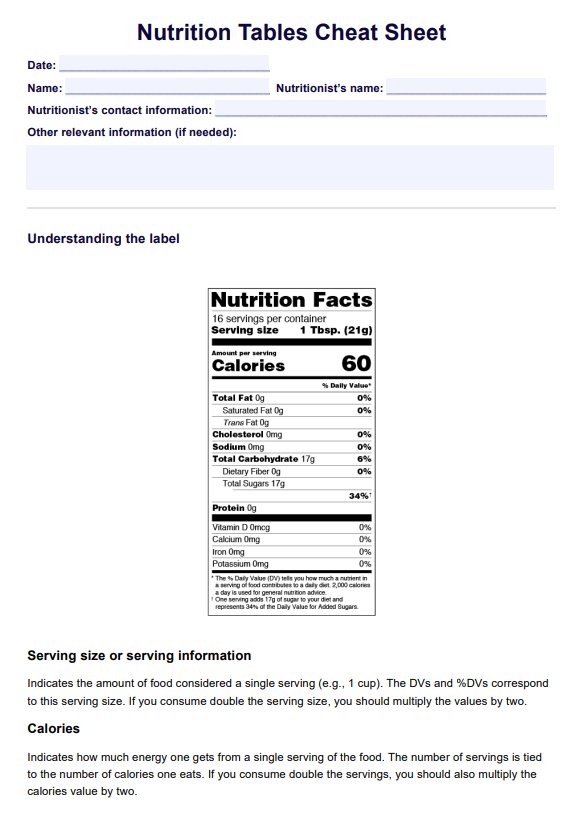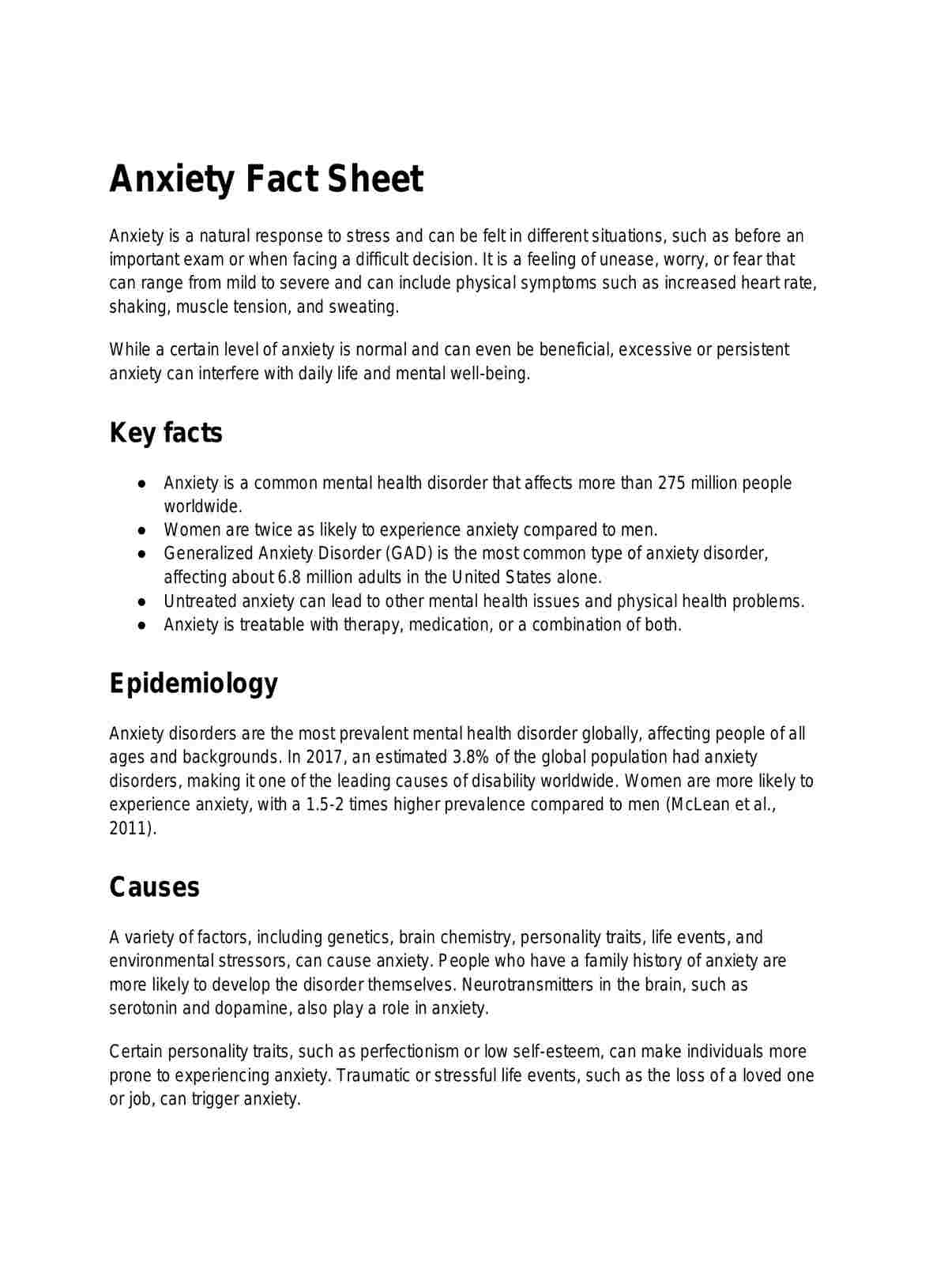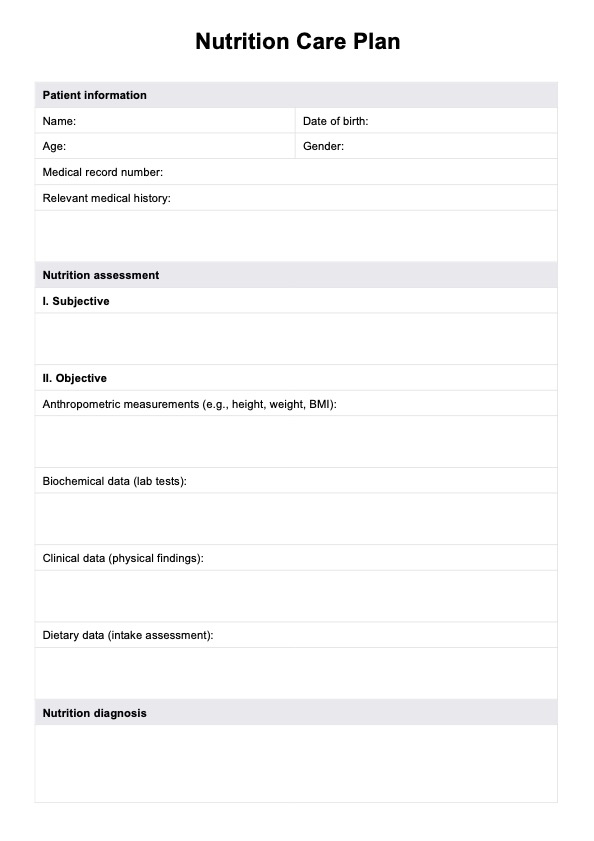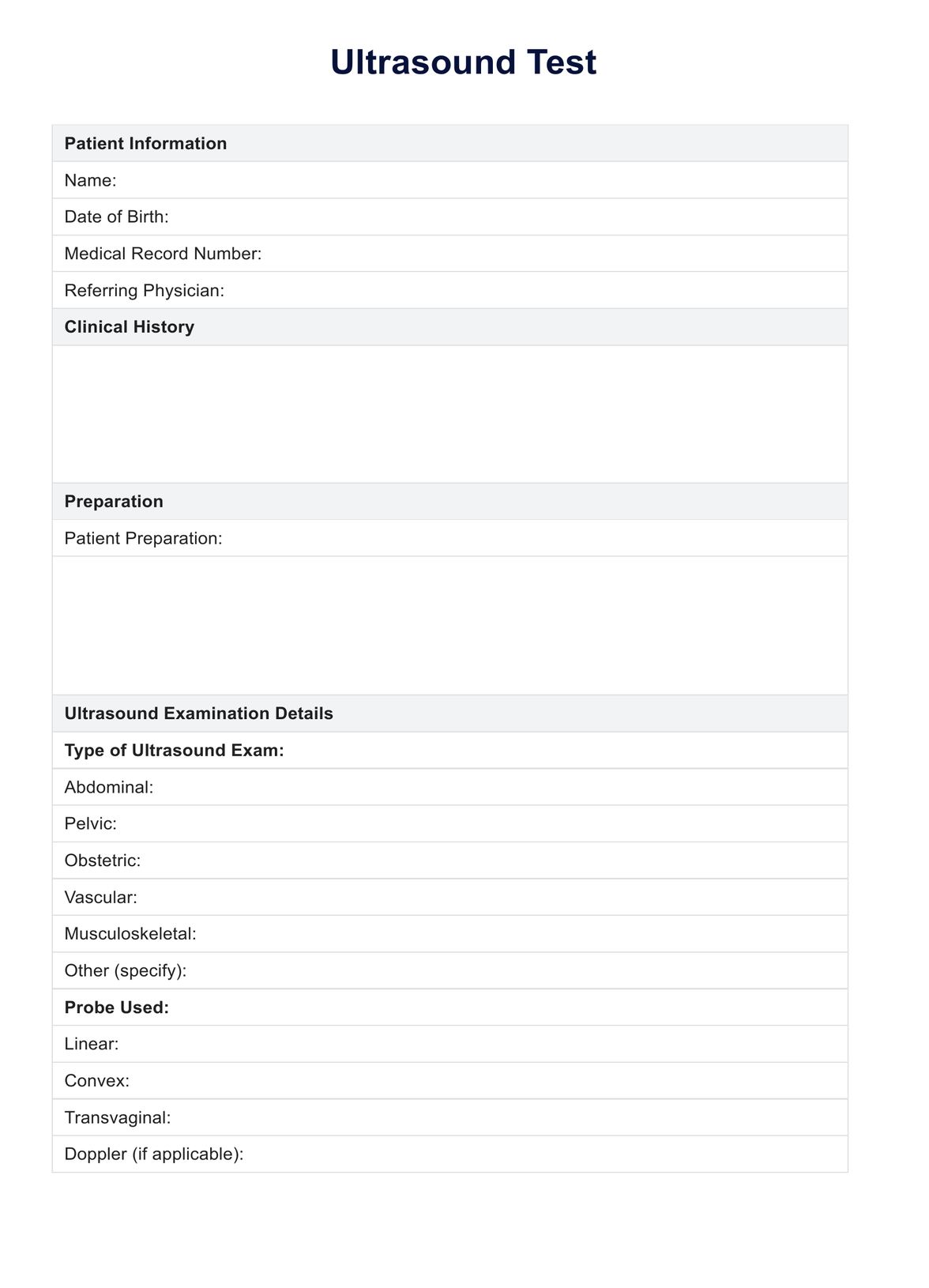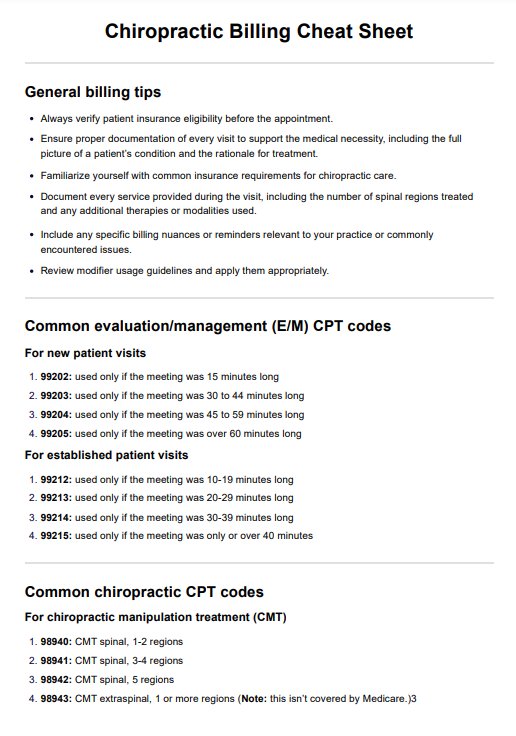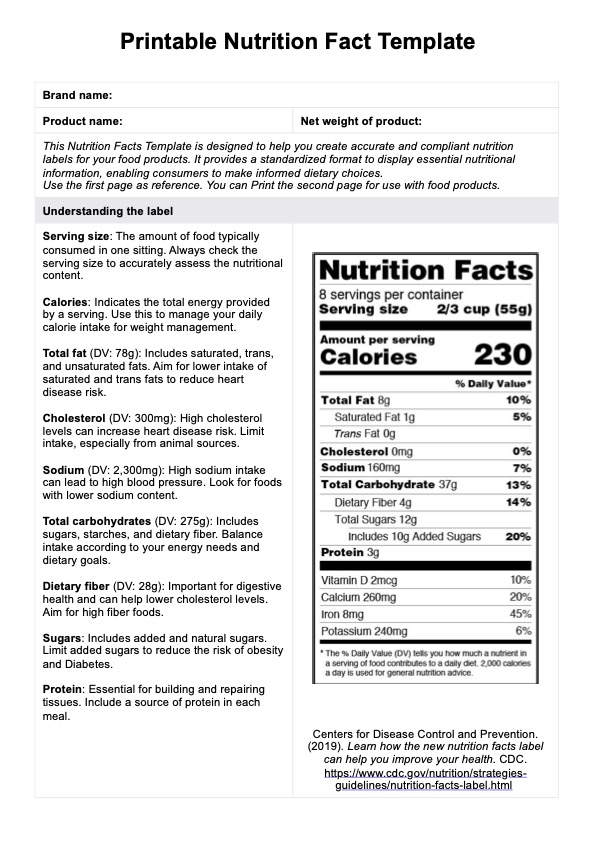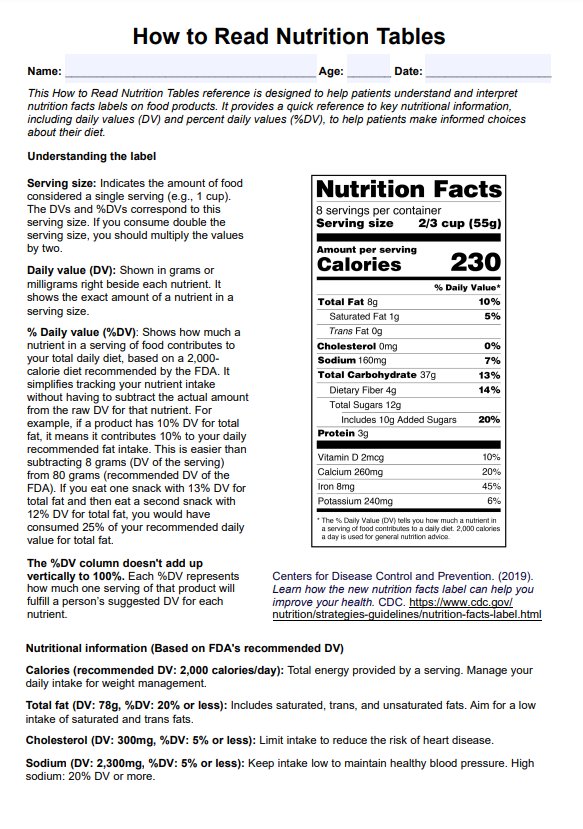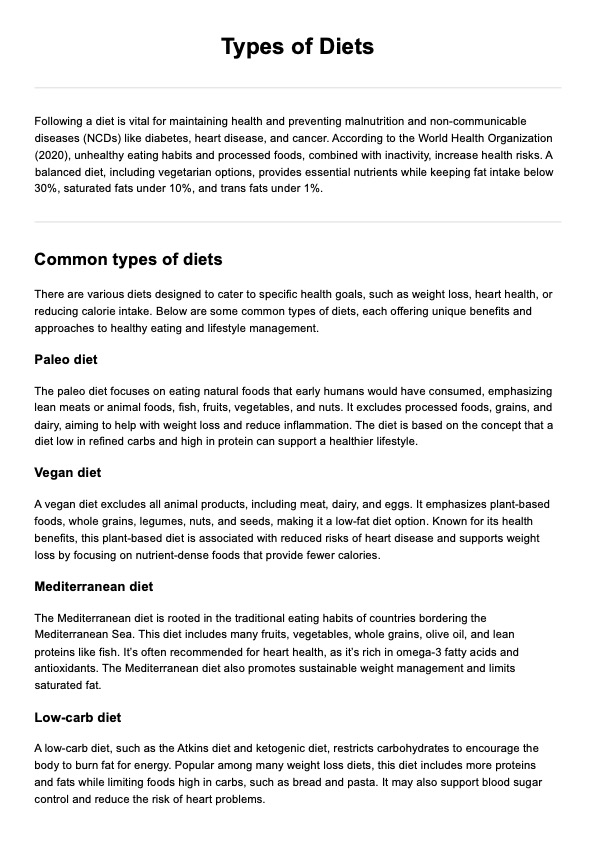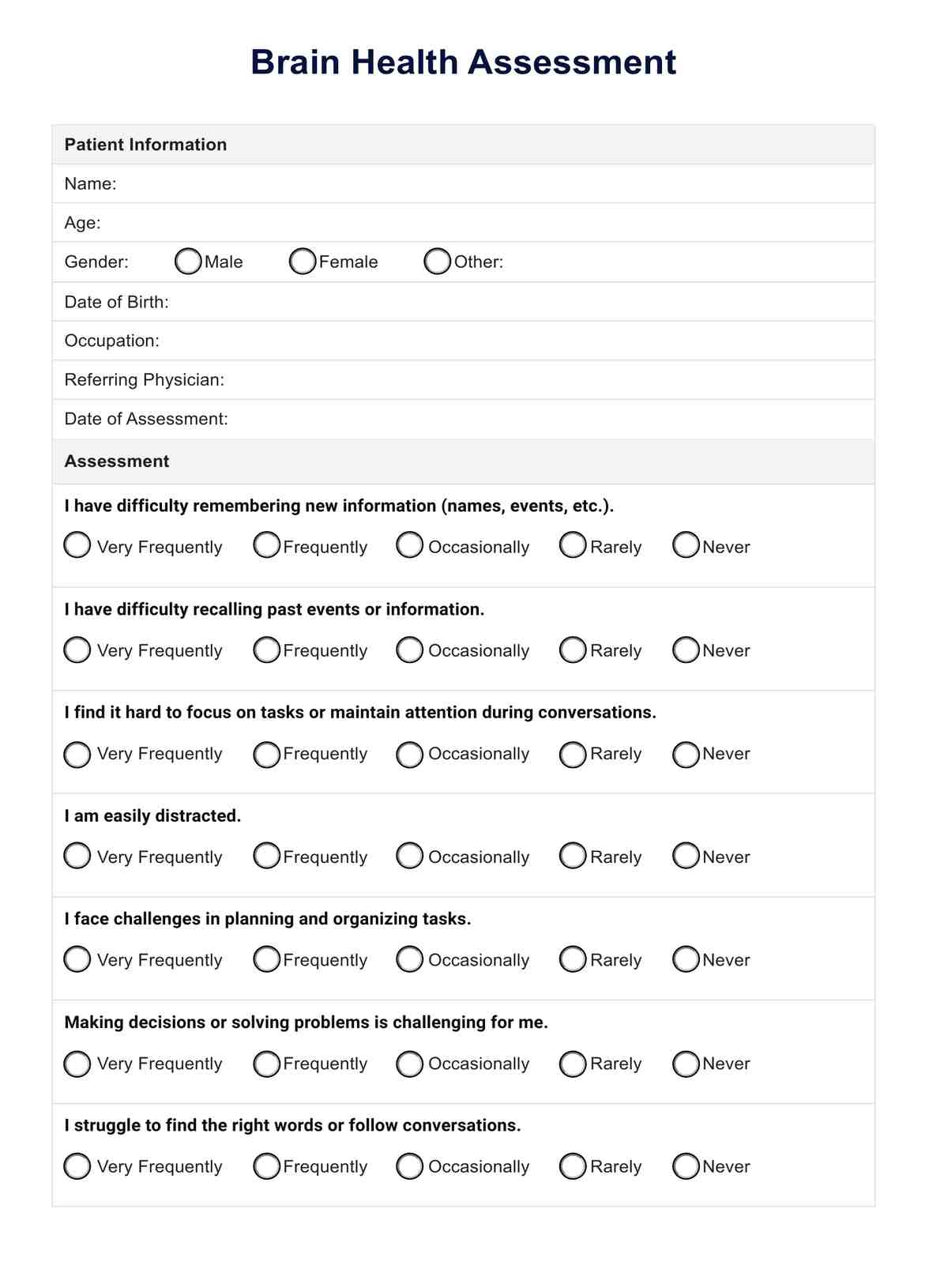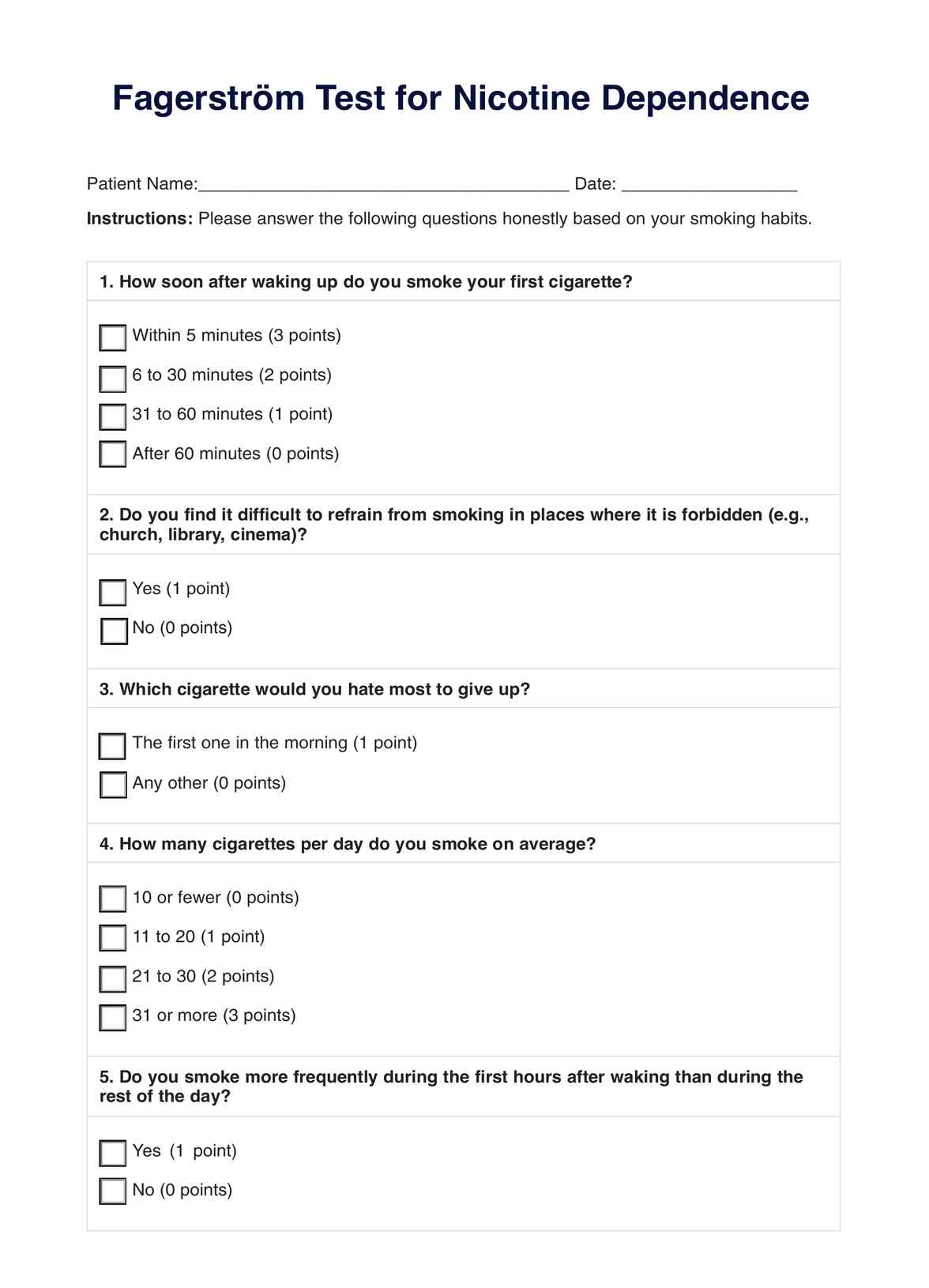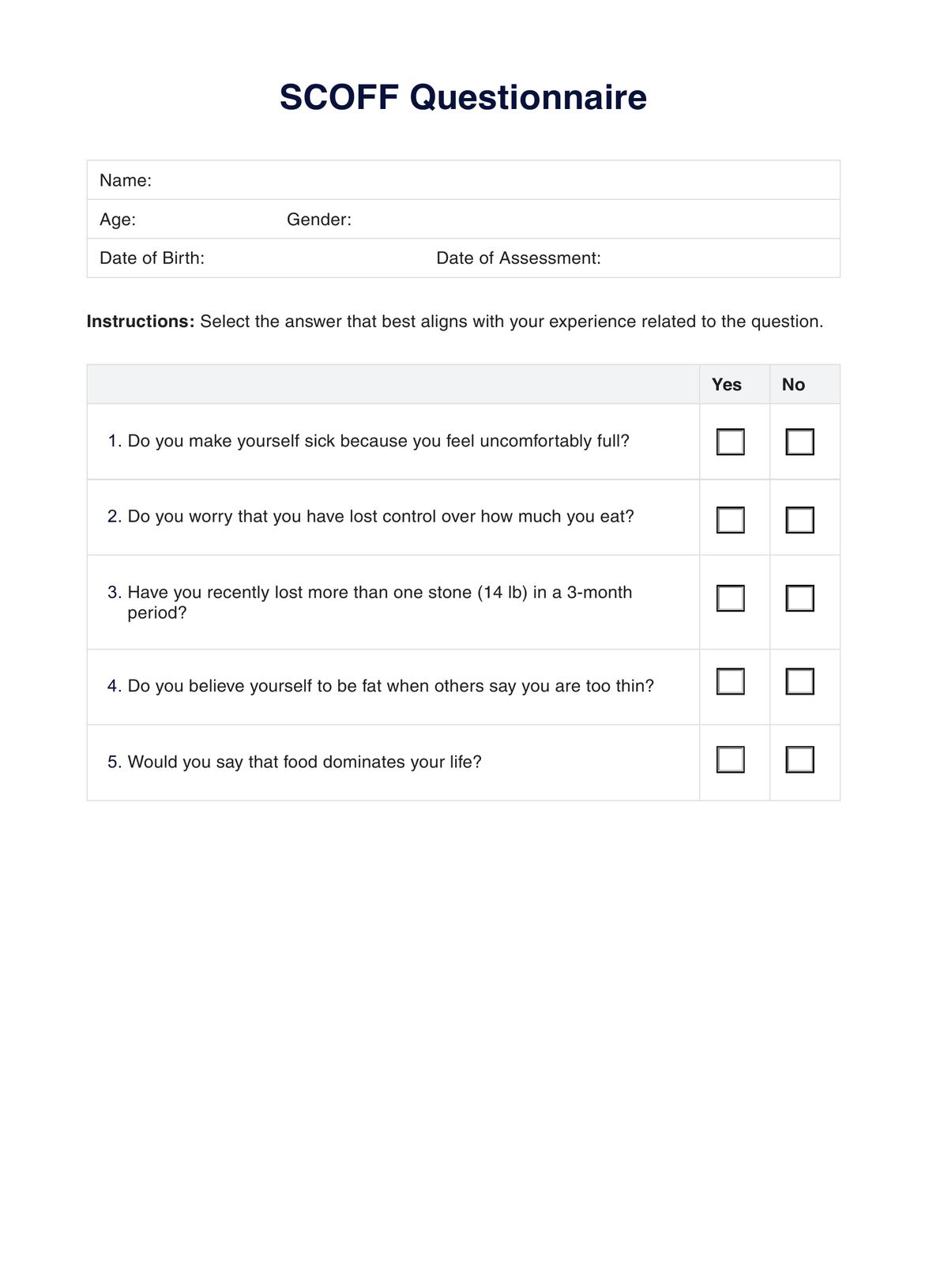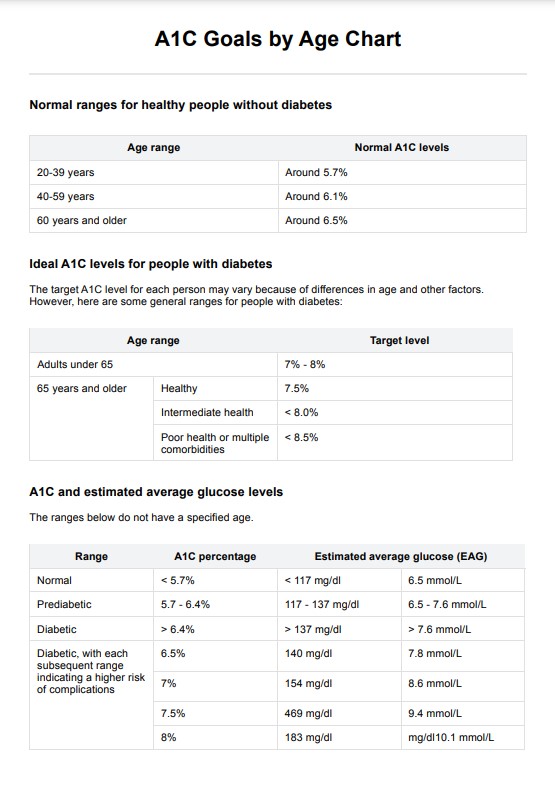Grocery Shopping List for Weight Loss
Get our Grocery Shopping List for Weight Loss to help clients choose healthy foods, avoid processed options, and plan balanced meals for better nutrition.


What is a Grocery Shopping List for Weight Loss?
Healthcare professionals often meet clients who want to lose weight for various reasons, such as improving overall health, managing body weight, or reducing the risk of chronic conditions. However, many struggle with making the right food choices, especially when surrounded by refined grains, snacks high in added sugar, and highly processed options at the grocery store. A Grocery Shopping List for Weight Loss helps clients stay on track by prioritizing minimally processed foods that support their weight loss journey.
A grocery shopping list for losing weight typically includes key food categories such as lean protein, whole grains, fresh fruits, vegetables, and healthy fats, while advising against foods that can lead to excess calorie intake. It provides a structured approach to meal planning, making it easier to build balanced meals and choose nourishing ingredients. Clients can use this list to develop long-term habits that promote weight management. By using this list, healthcare professionals can guide clients toward smarter grocery shopping, making their weight loss journey more effective and sustainable.
Grocery Shopping List for Weight Loss Template
Grocery Shopping List for Weight Loss Example
How does this grocery list for weight loss work?
This grocery list helps clients focus on healthy foods while reducing processed foods that may slow weight loss. Following these simple steps, they can create a balanced meal plan with lean protein, whole grains, fresh fruits, and healthy fats to support sustainable weight loss. Follow these steps to guide them:
Step 1: Download the template
Start by downloading and printing the grocery shopping list. Click on "Download" from the template preview to get a fillable PDF copy of our worksheet. Alternatively, you can customize this based on your preferences or the client's specific needs by clicking "Use template" to edit it within the Carepatron platform. This makes it easy to navigate the grocery store and choose nutritious options.
Step 2: Review the food categories
Go through each section to see which foods fit into a healthy diet. Encourage clients to add green beans, lean meats, and whole grains to their list while minimizing frozen foods with added preservatives.
Step 3: Plan meals before shopping
Help clients prepare a meal plan using items from the list. Recommend recipes that include healthy options like extra virgin olive oil, lean protein, and whole grains to keep meals balanced and satisfying.
Step 4: Shop with intention
Encourage clients to focus on nutrient-dense foods instead of processed foods. Teach them to check labels and pick healthier choices to stay on track on their weight loss diet.
When would you use this weight-loss shopping list?
If you're helping a client improve their eating habits, this weight loss grocery list can be a valuable tool. It guides them toward nutritious foods while reducing less healthy options, making it easier to stick to their goals. Here are three key times when this list can be especially useful.
When a client struggles with meal planning
Some clients feel overwhelmed by food choices and end up buying whatever looks convenient. This list helps them focus on fruits and vegetables, lean proteins, whole grains, and healthy fats so they can create balanced meals without stress. By planning ahead, they can avoid last-minute takeout and stick to their weight loss goals.
When a client wants to manage cravings
Many clients struggle with snacking on processed foods, which can slow progress. This list encourages healthier snack foods like nuts, yogurt, and fresh fruit, making it easier to stay satisfied between meals. Having these options on hand makes them less likely to reach for chips or sugary treats.
When a client needs healthier grocery shopping habits
For clients who frequently buy processed meals or high-fat dairy products, this list can help them make better choices. It guides them toward nutritious foods that support successful weight loss, such as low-fat dairy, whole grains, and fresh produce. Over time, these smarter shopping habits make a big difference in their overall health.
Benefits of this Grocery Shopping List for Weight Loss
A well-planned grocery list can make all the difference for clients trying to eat healthier. It helps them stay on track, avoid common pitfalls, and build habits that support long-term success. Here are four key benefits of using this list.
Encourages healthier food choices
Many clients struggle with knowing which foods to buy for weight loss. This list takes the guesswork out of shopping by focusing on whole, nutrient-dense foods like lean proteins, whole grains, and fresh produce. Clients with the right foods at home are more likely to stick to their meal plan.
Reduces impulse buying
Without a plan, clients might grab whatever looks good at the moment—often processed snacks or sugary treats. A structured grocery list keeps them focused on foods that align with their goals, preventing unnecessary purchases. This helps them make mindful choices and avoid tempting aisles at the store.
Makes meal planning easier
Knowing what to cook daily is a big challenge in maintaining healthy eating habits. This list allows clients to plan meals in advance with a mix of proteins, whole grains, and healthy fats. Having a plan saves time and makes it easier to stick to a routine.
Supports long-term weight management
This grocery list encourages clients to shop for foods that nourish their bodies while avoiding overly processed options. Over time, these habits help them maintain a healthier lifestyle.
Commonly asked questions
Crafting a thoughtful weight loss grocery list is crucial to help manage weight, especially for these individuals. Focus on whole foods to support better blood sugar control. Also, always consult with your healthcare provider and registered dietitian for guidance.
Encourage them to buy in bulk, choose seasonal produce, and opt for store-brand items. Frozen fruits and vegetables are also great budget-friendly options that still provide essential nutrients.
Not necessarily. Frozen and canned foods can be healthy if they don’t contain added sugar, salt, or preservatives. Look for options like frozen vegetables, canned beans, and tuna packed in water for convenient and nutritious choices.
Advise them to shop after eating so they’re less tempted by unhealthy foods. Sticking to the outer aisles, where fresh produce, lean proteins, and whole foods are usually found, can also help them make better choices.


